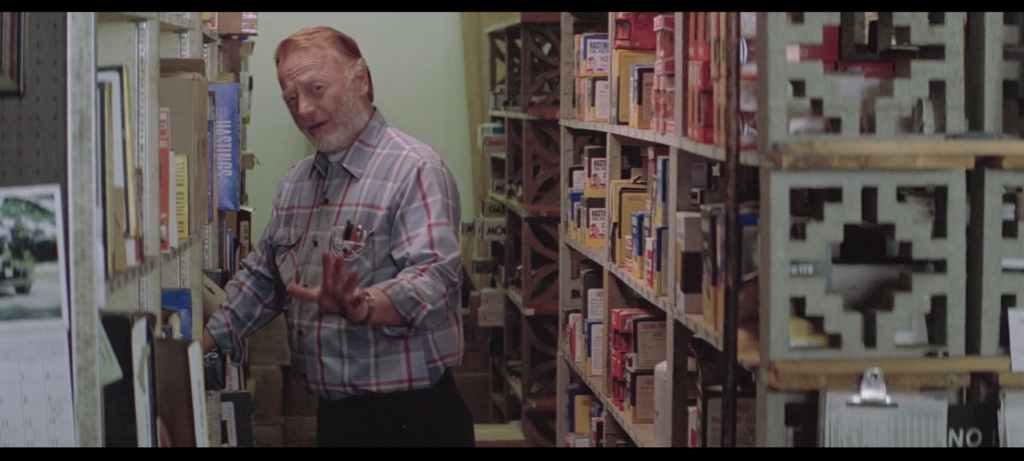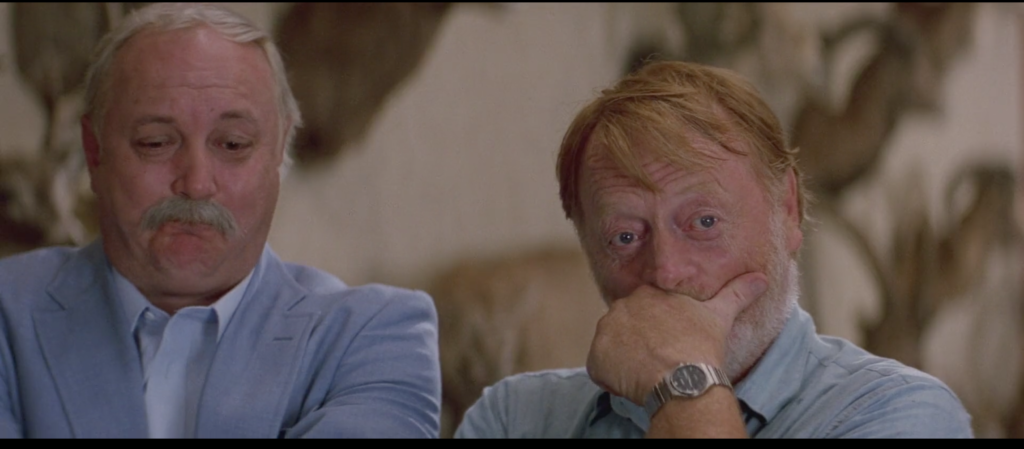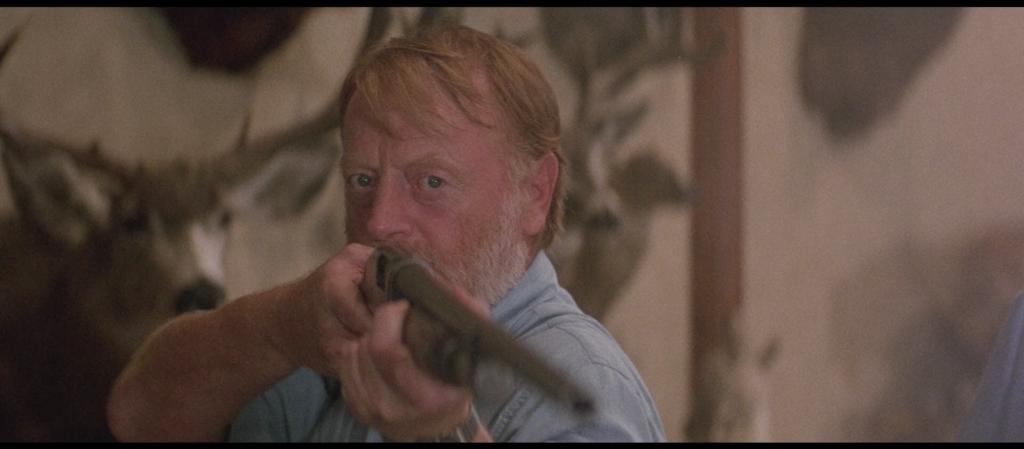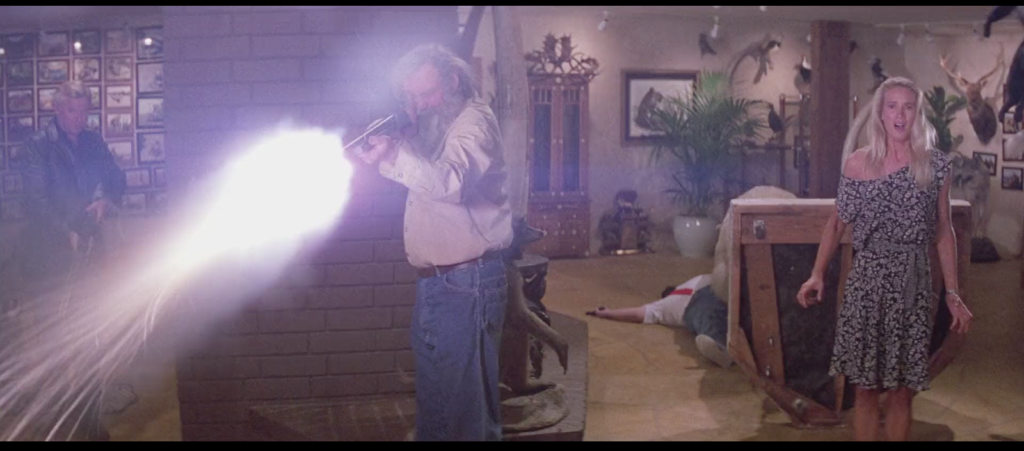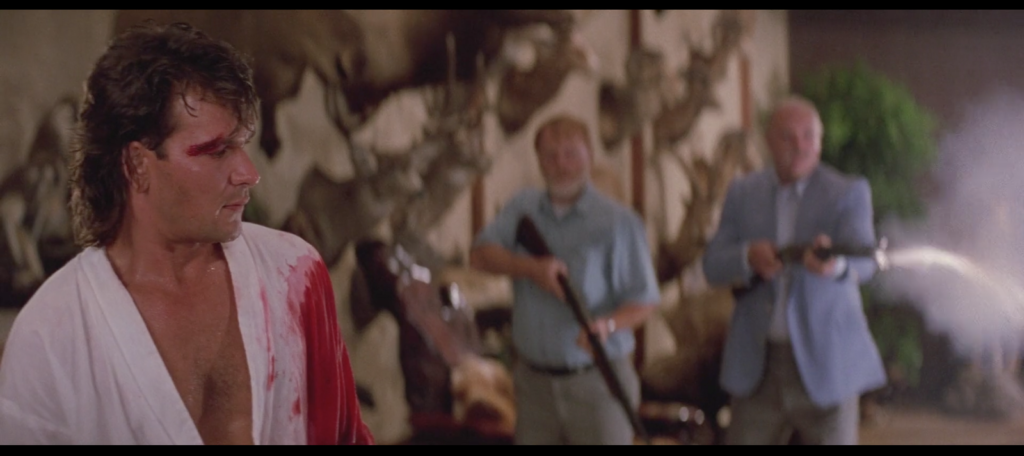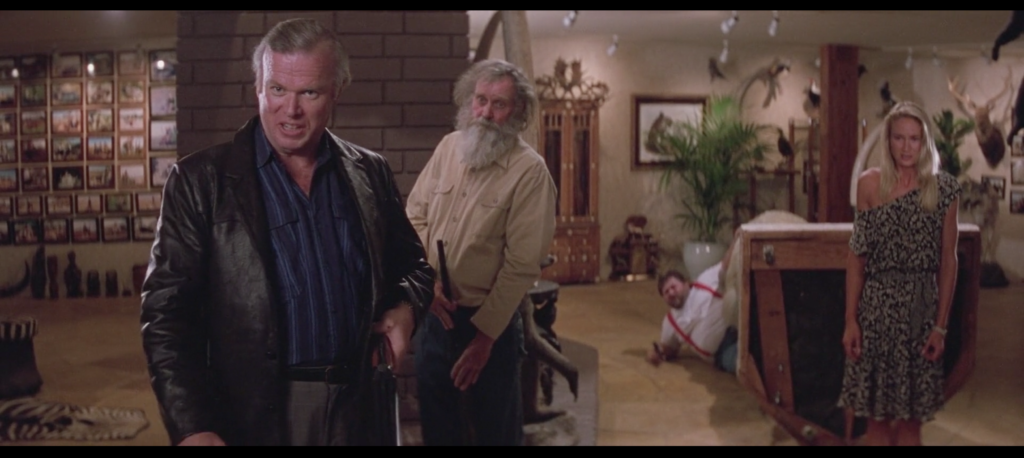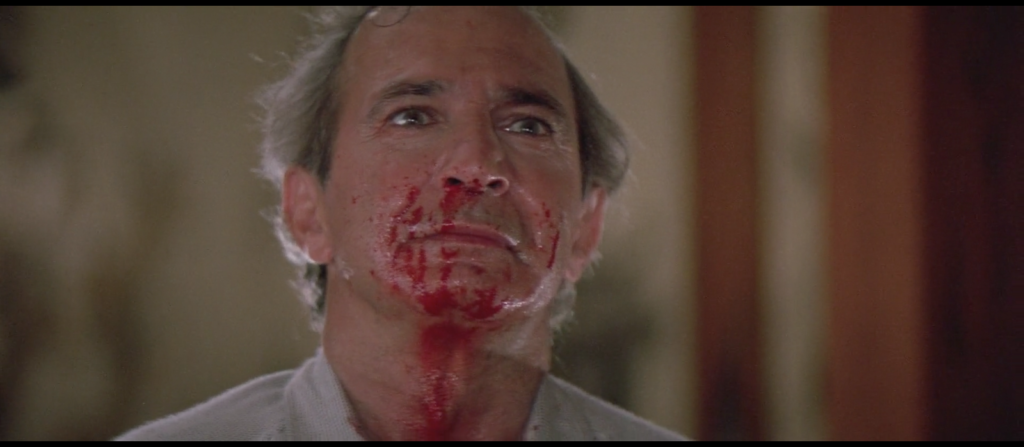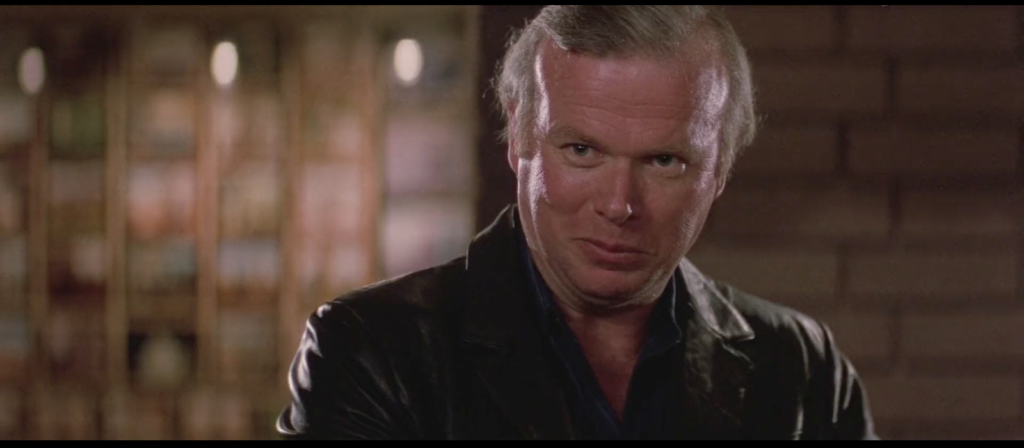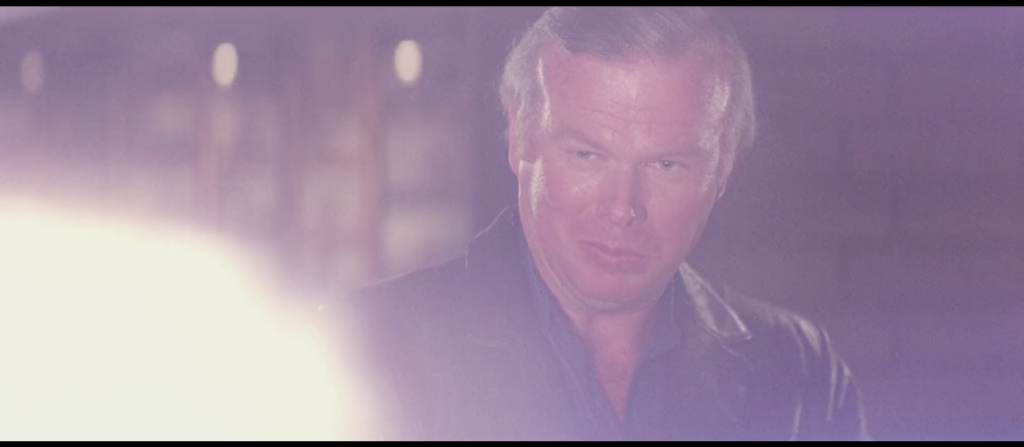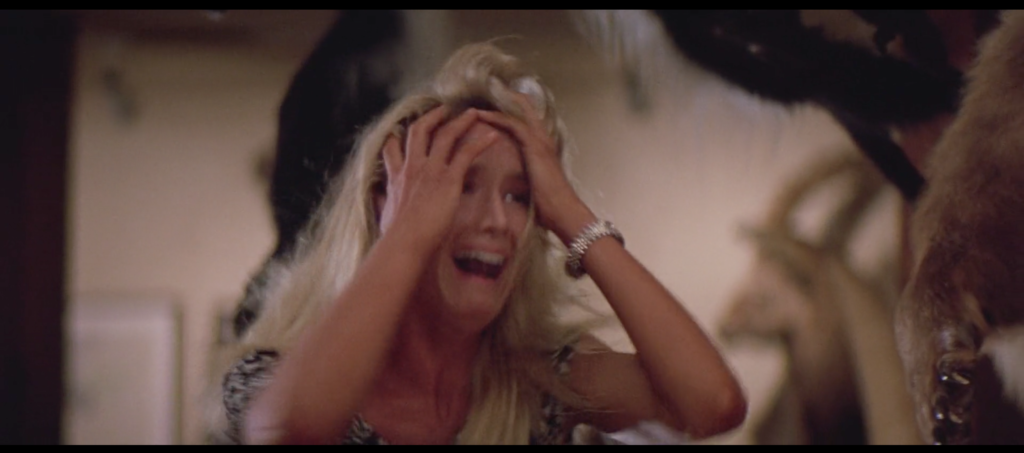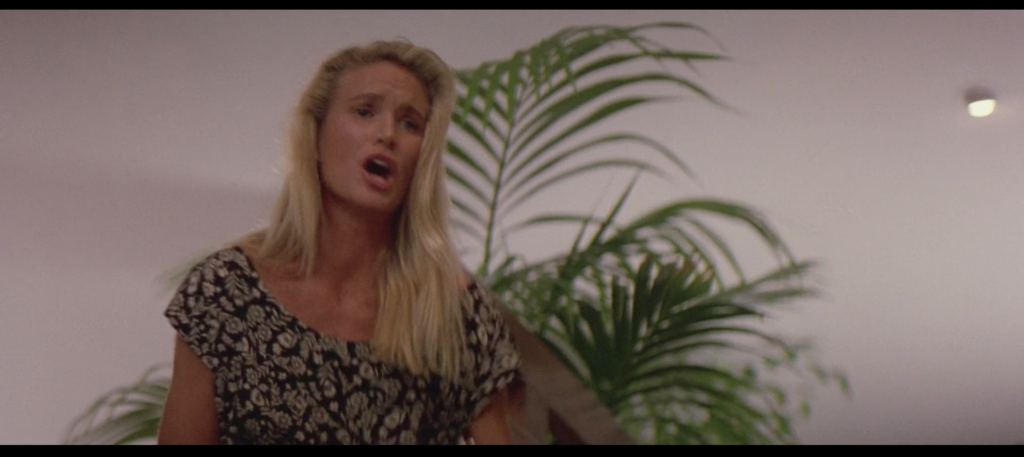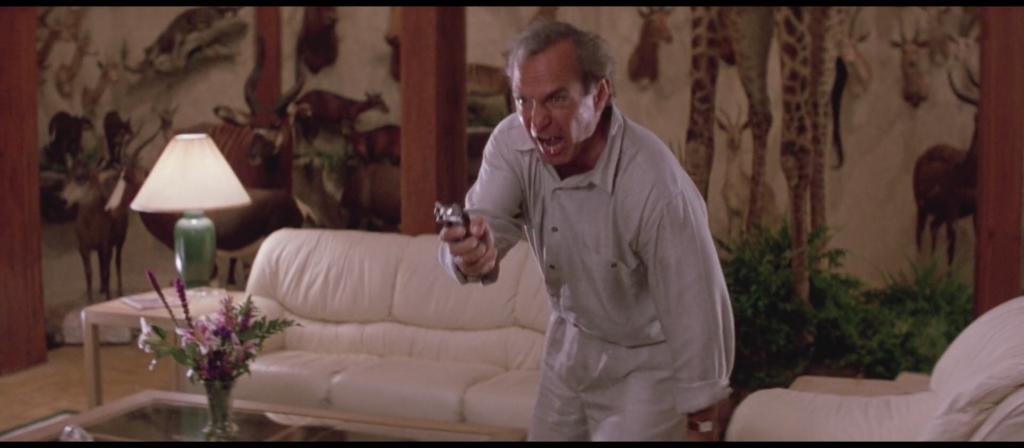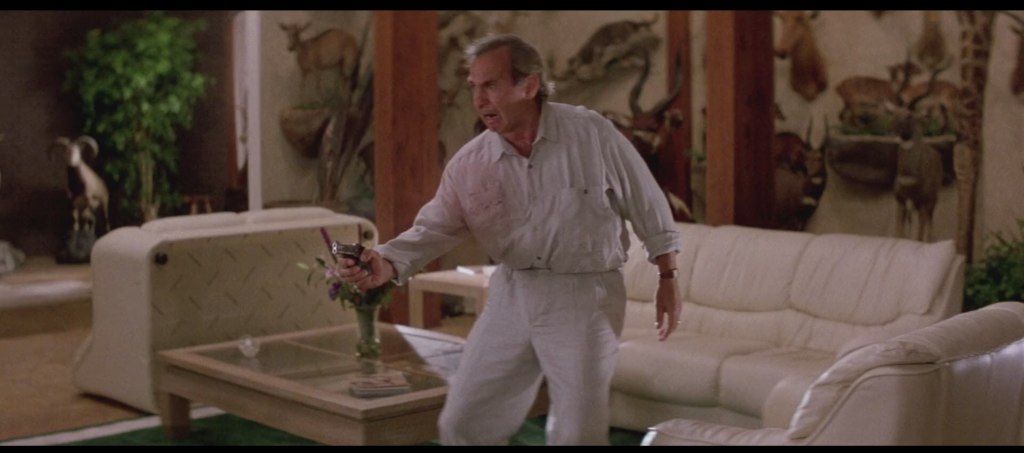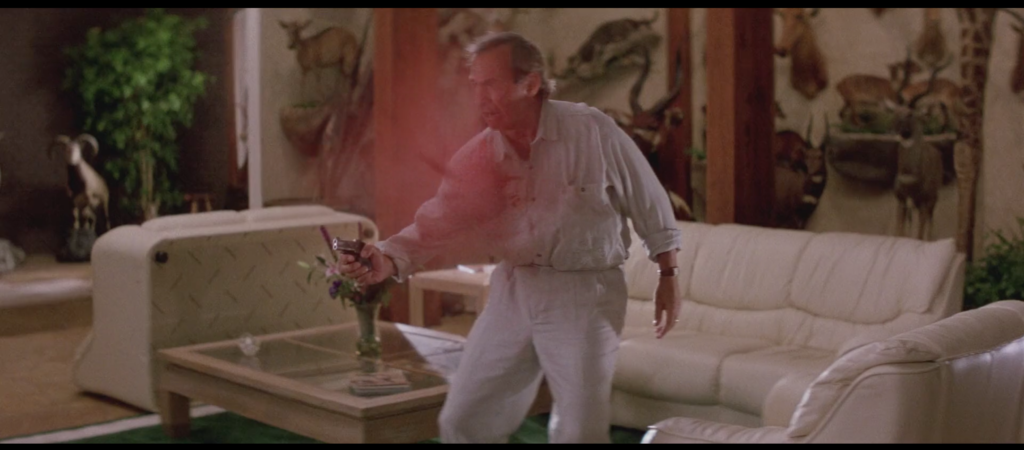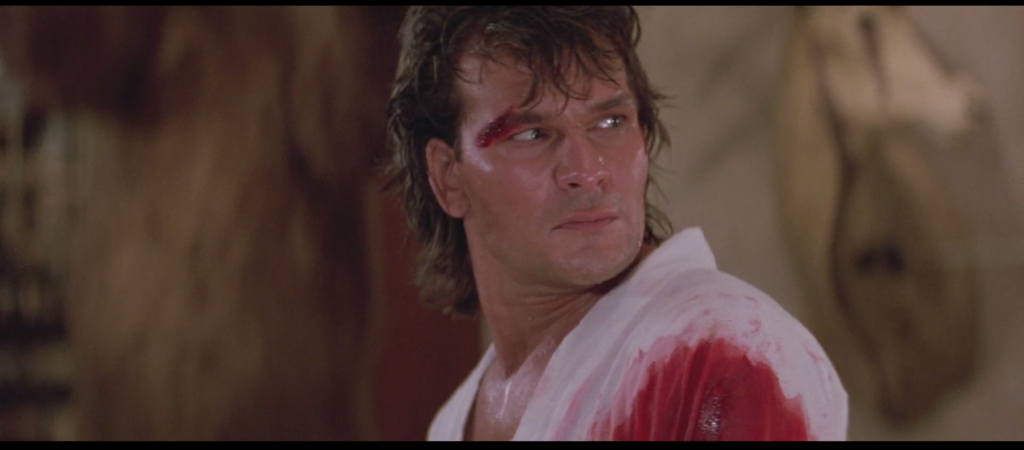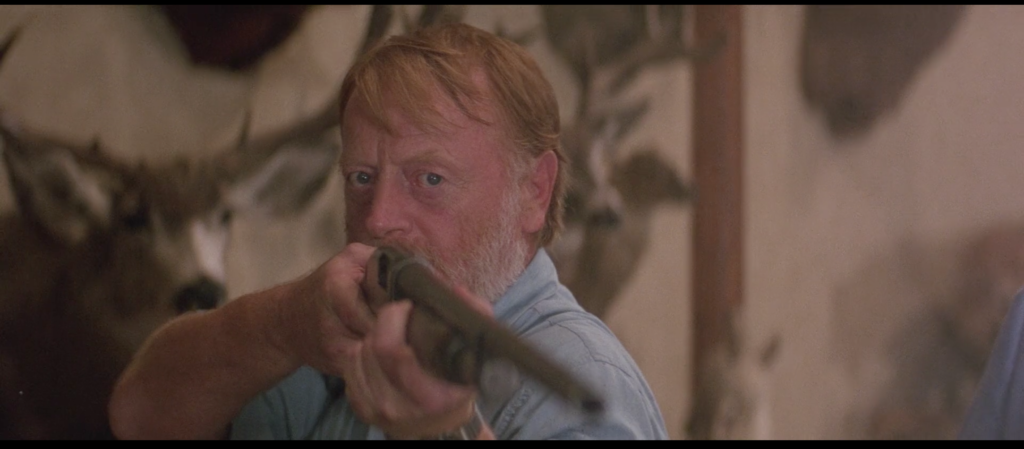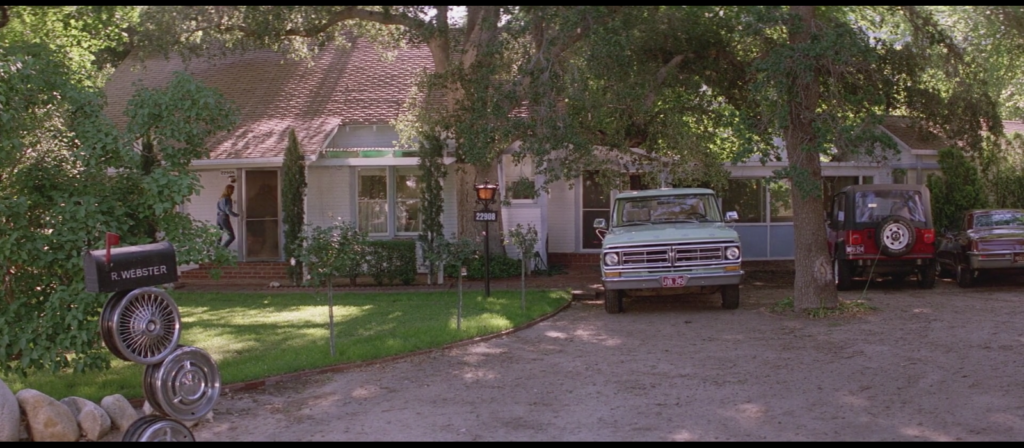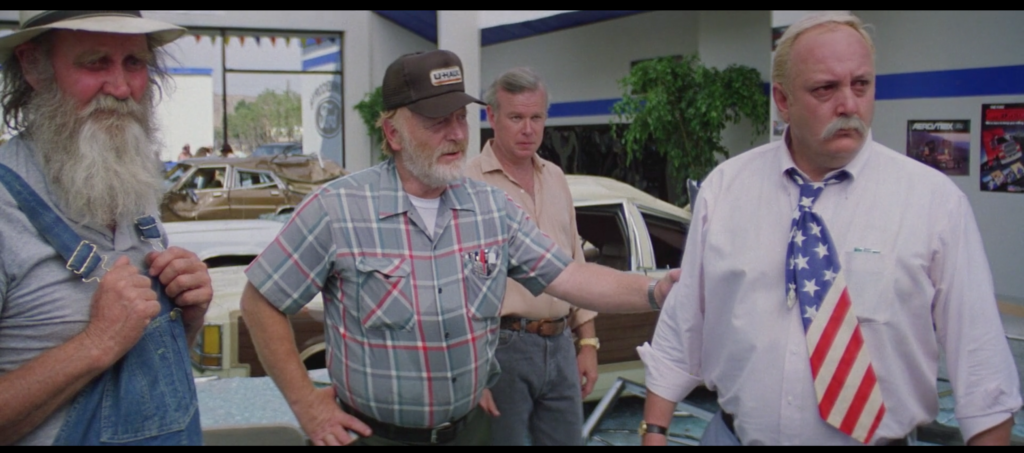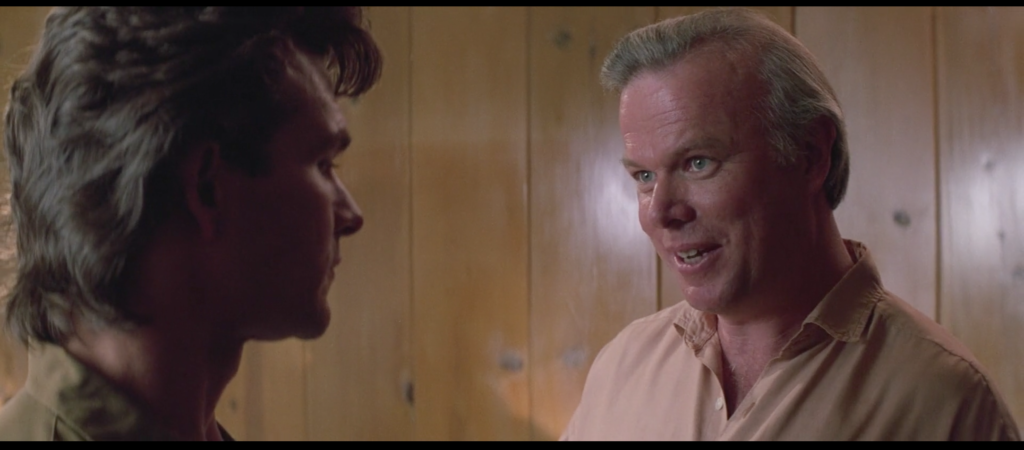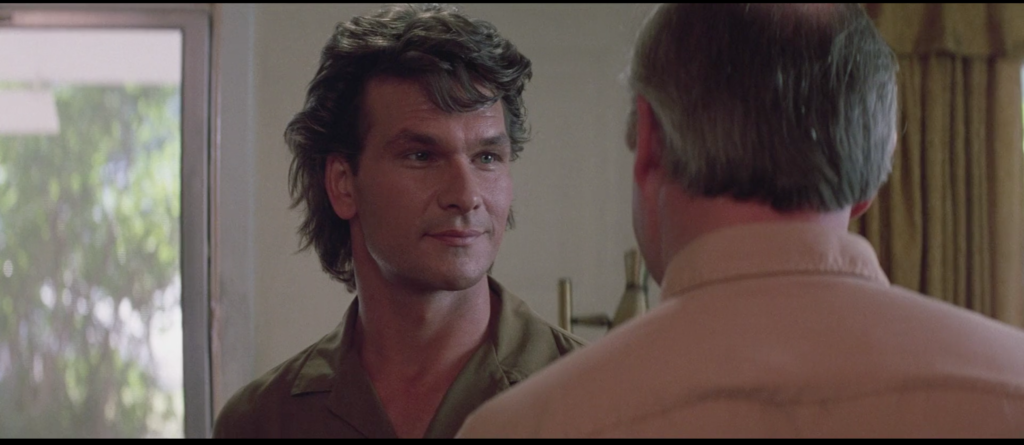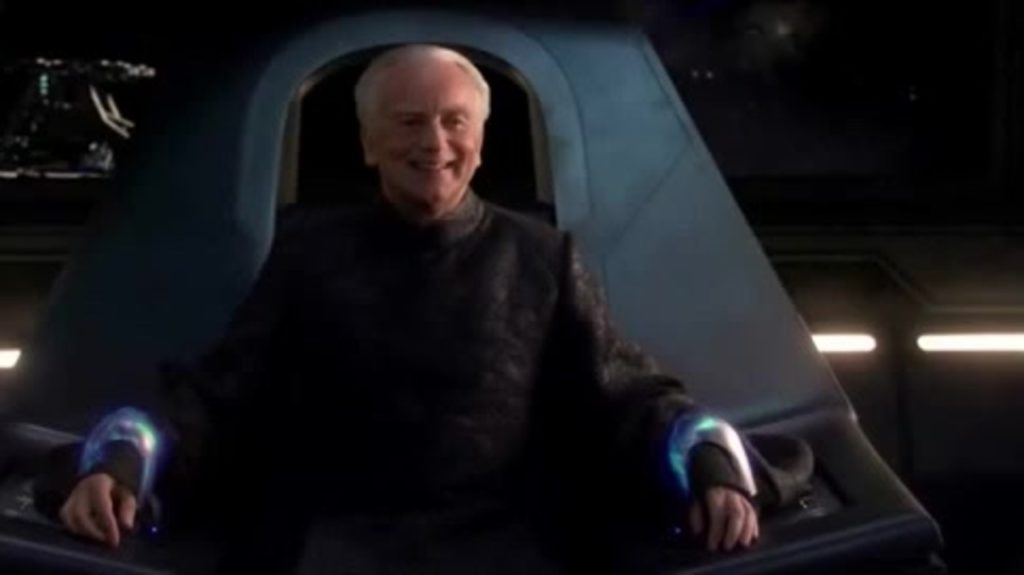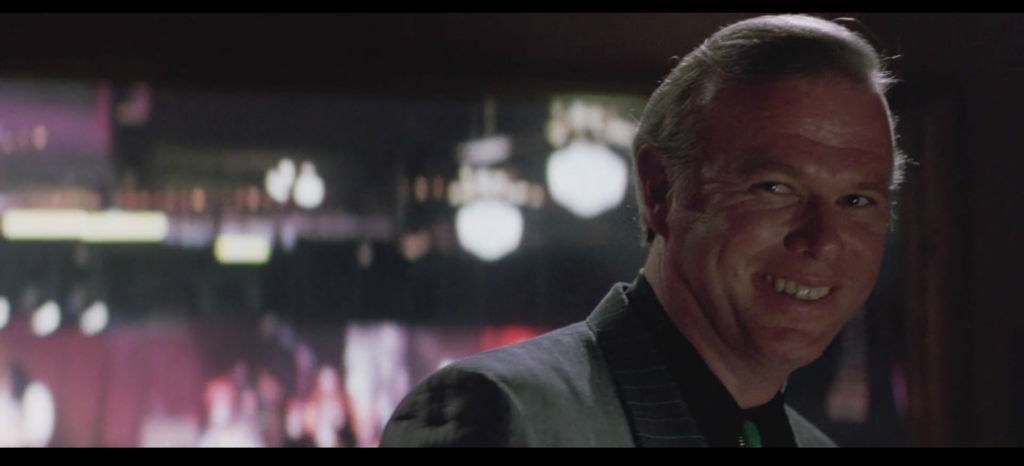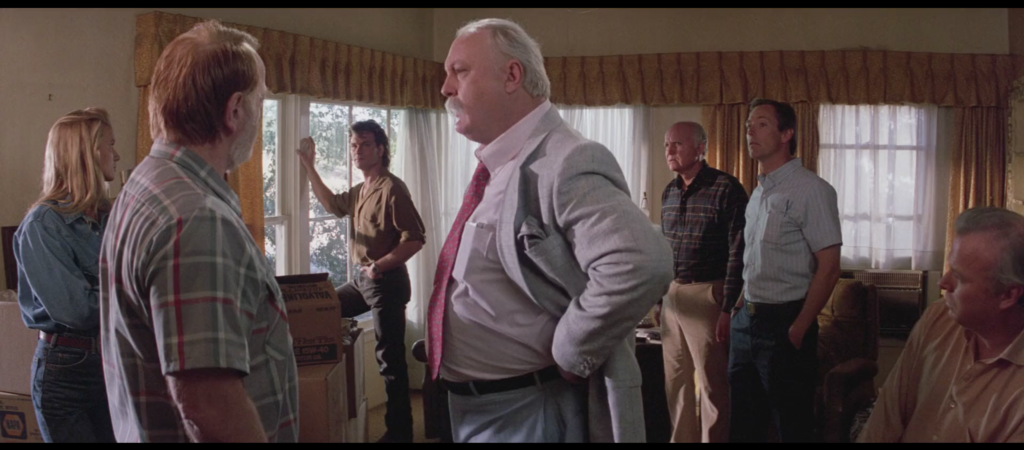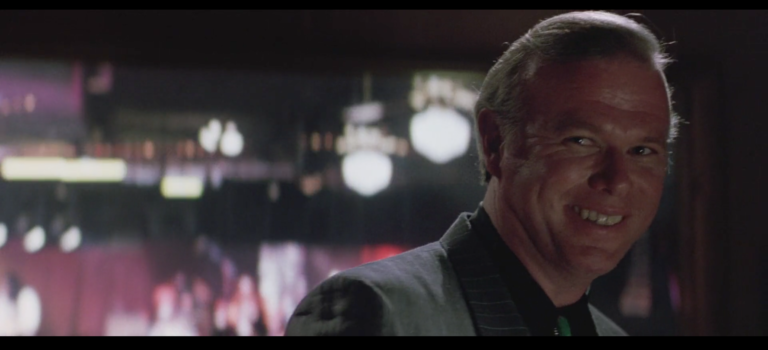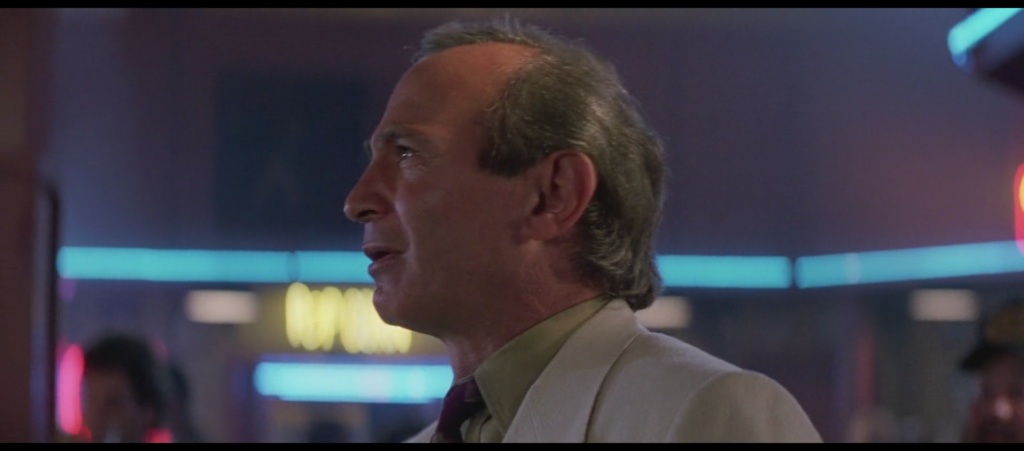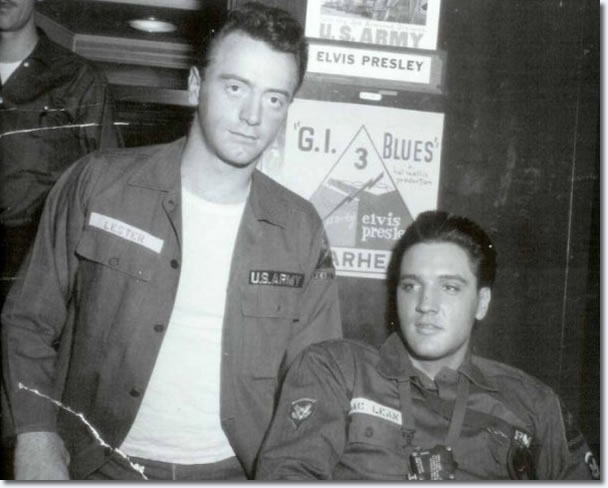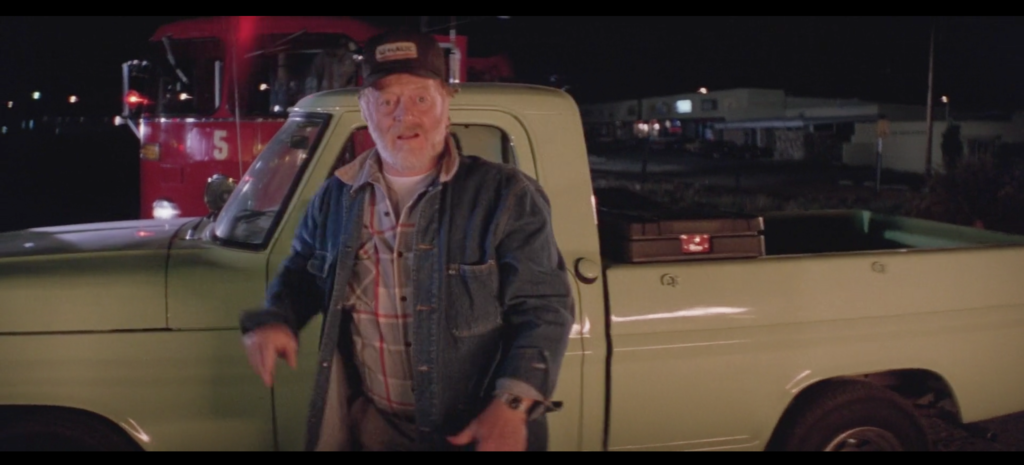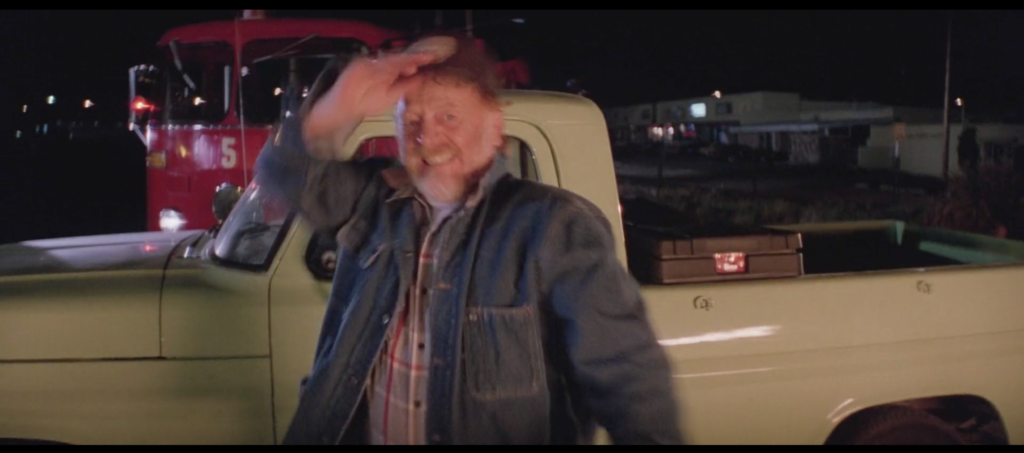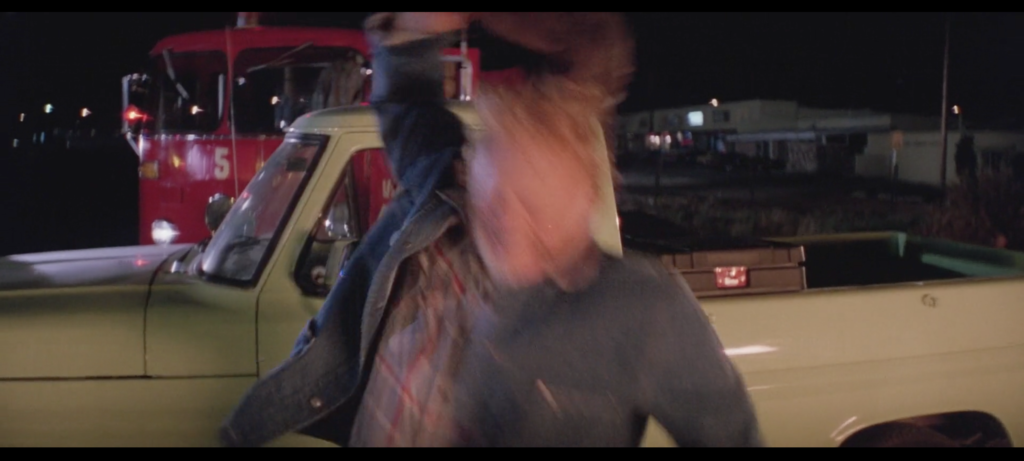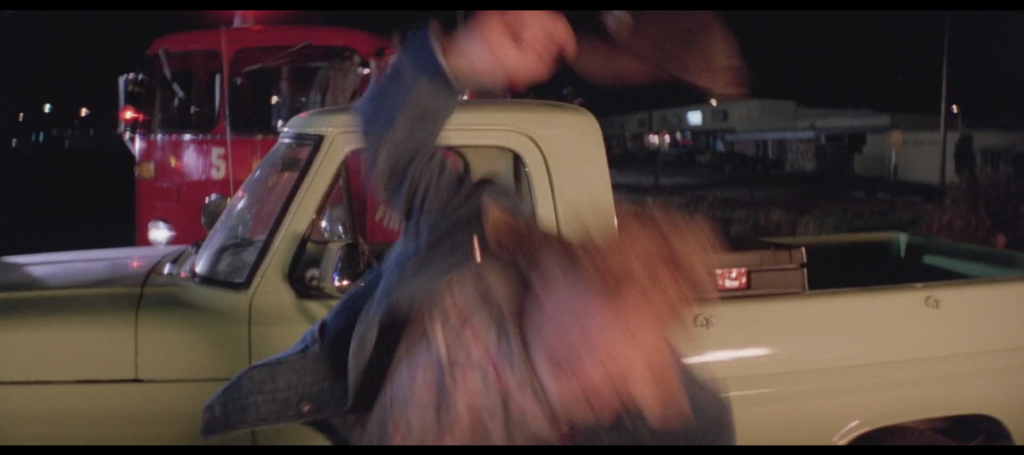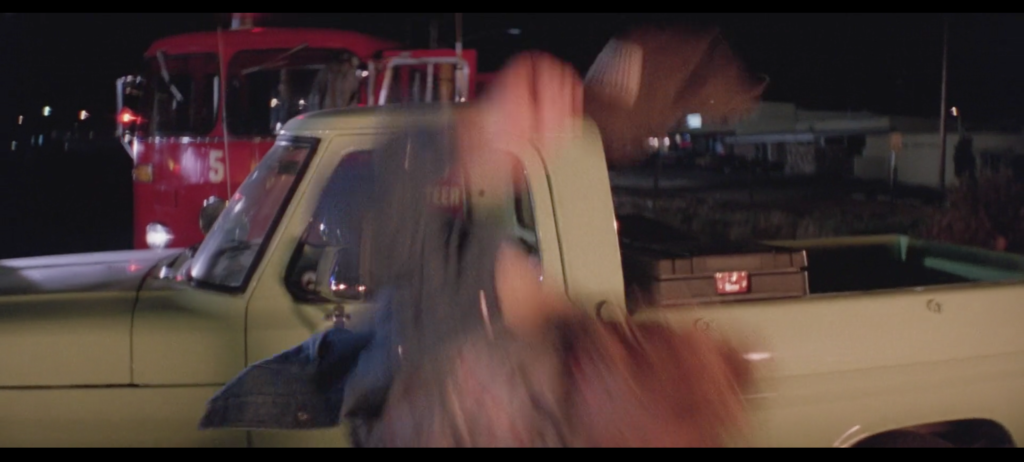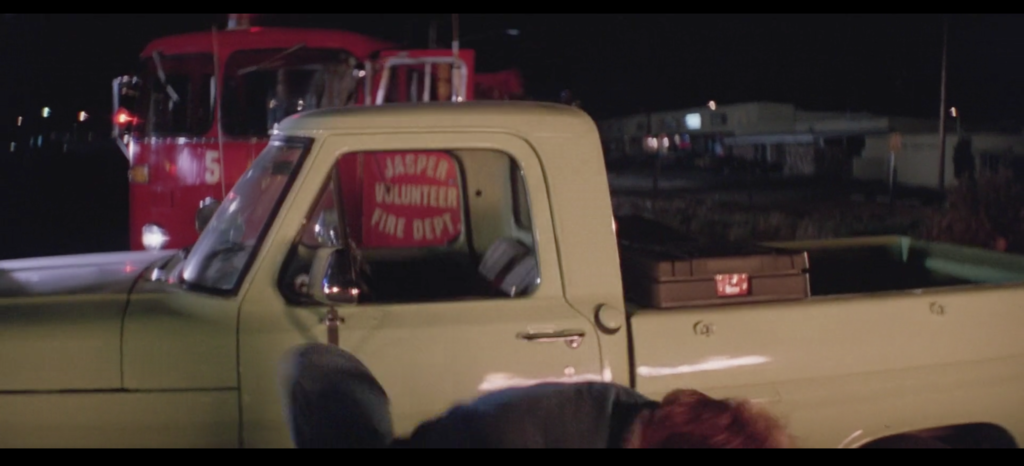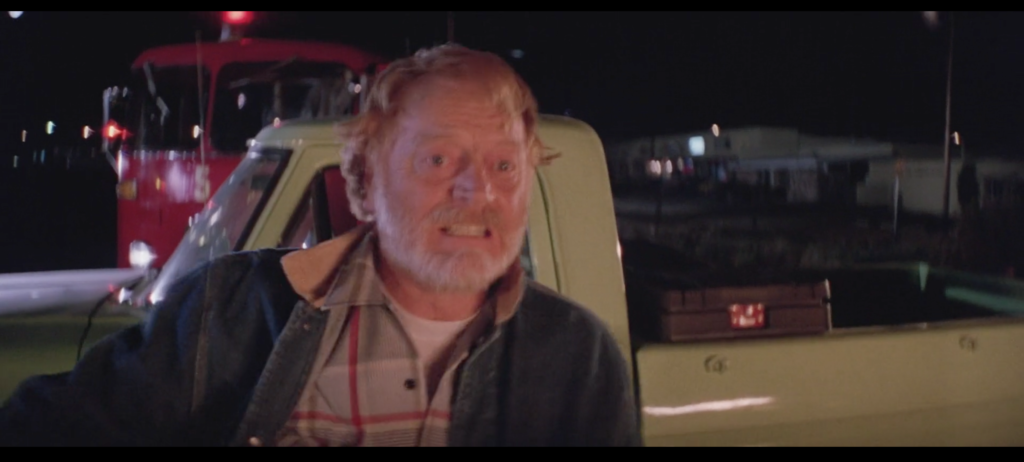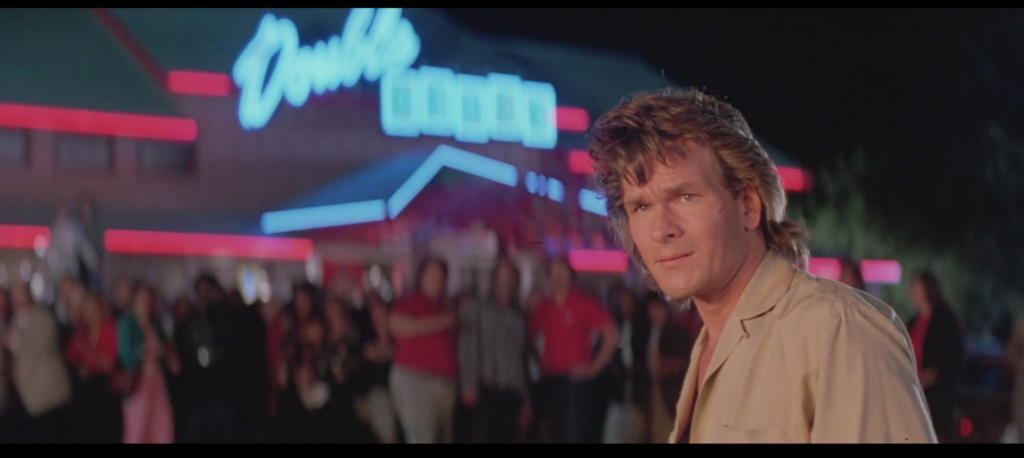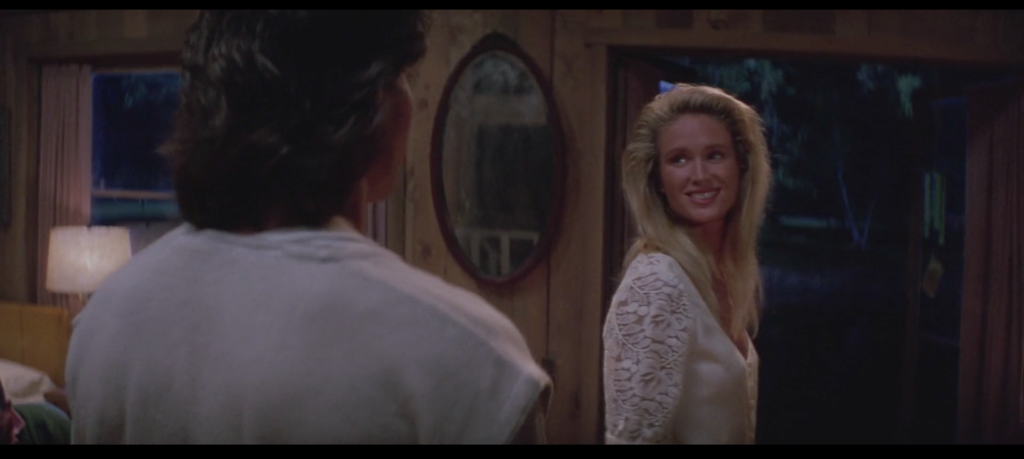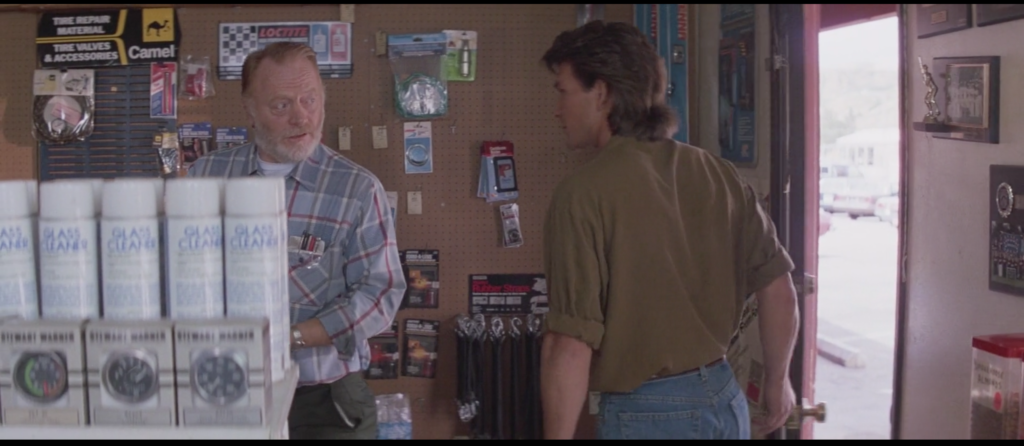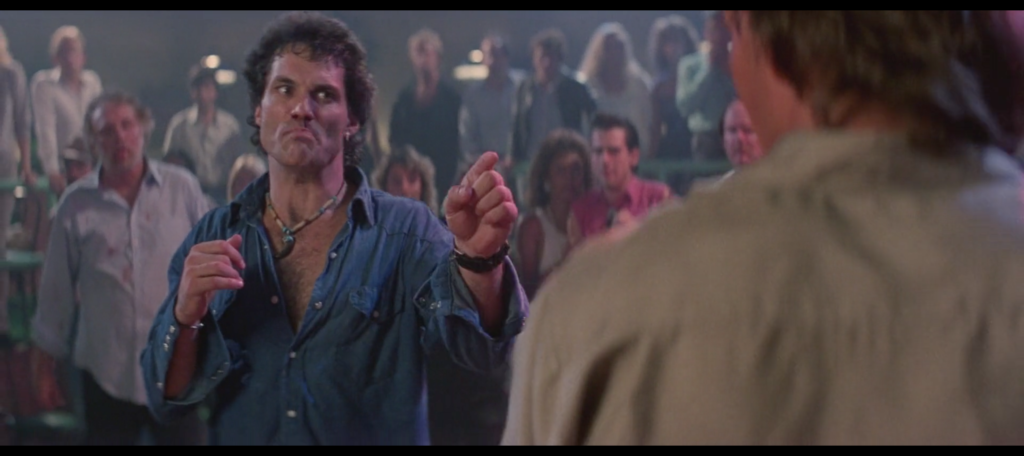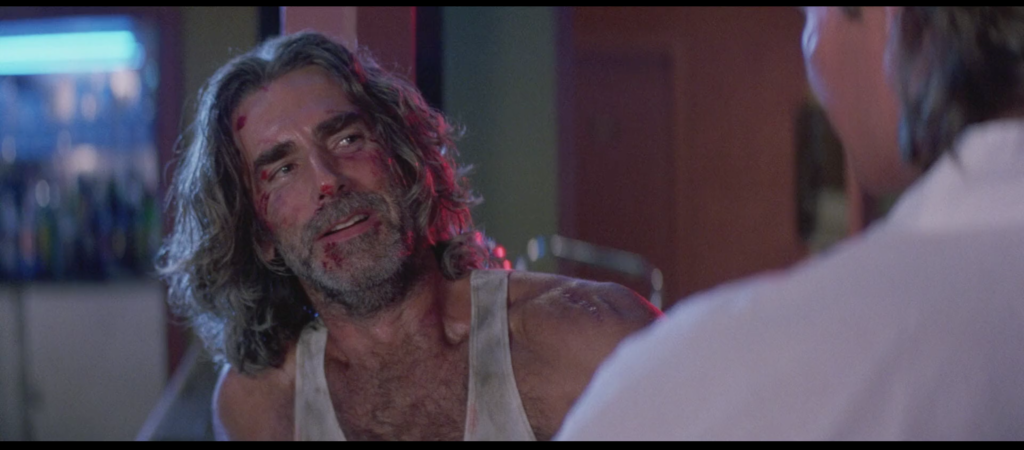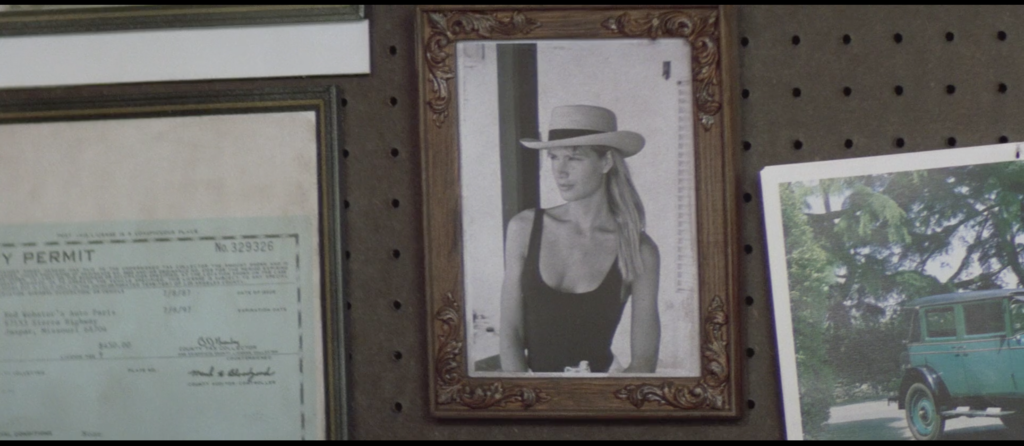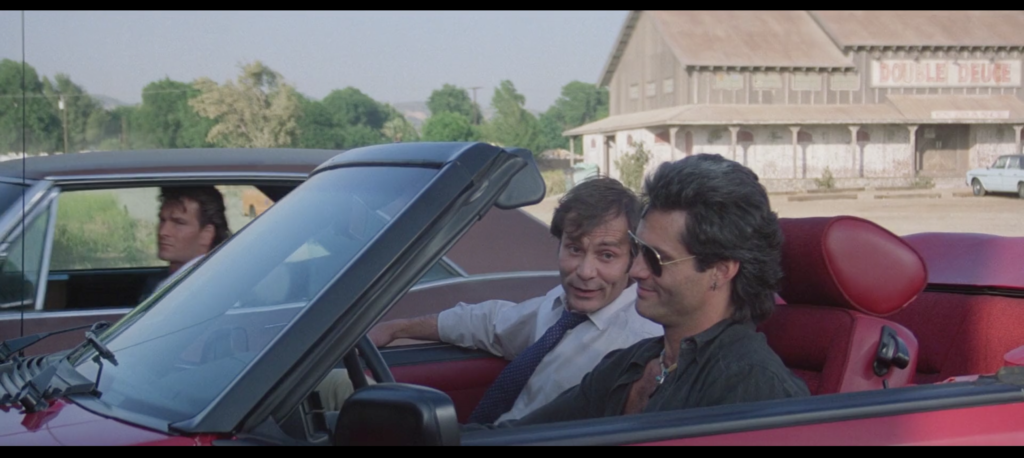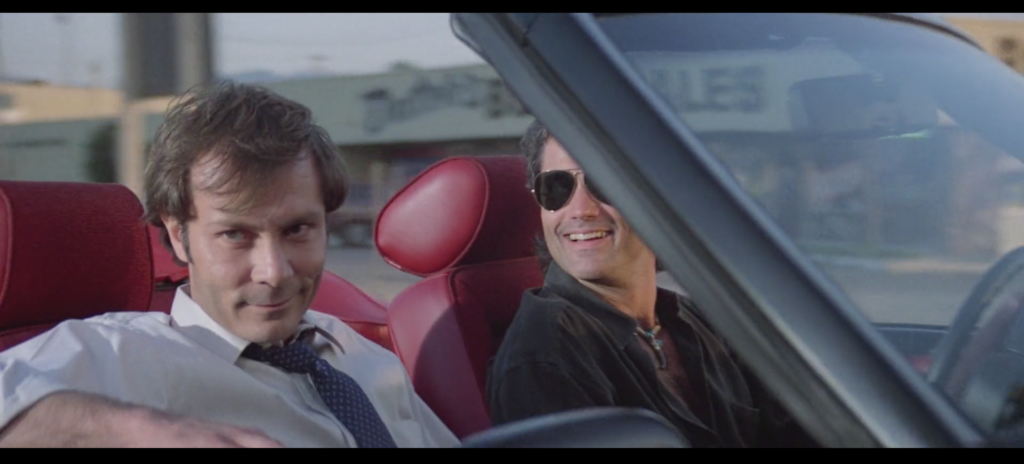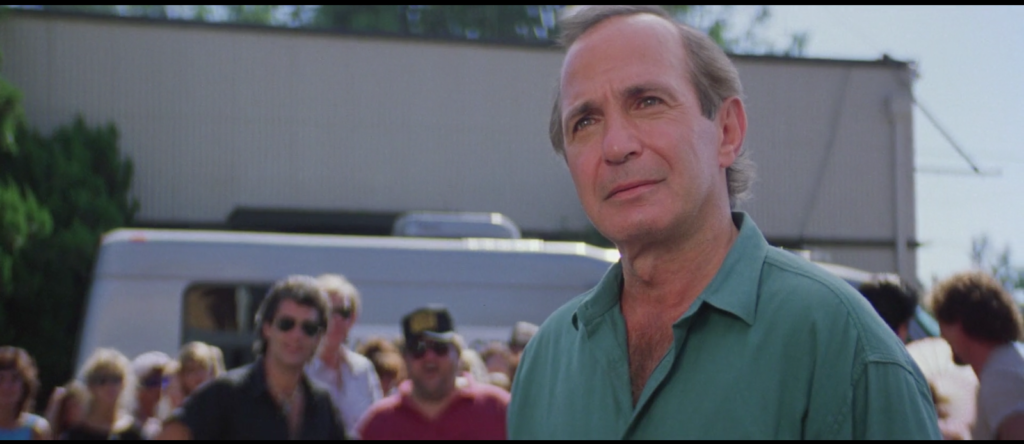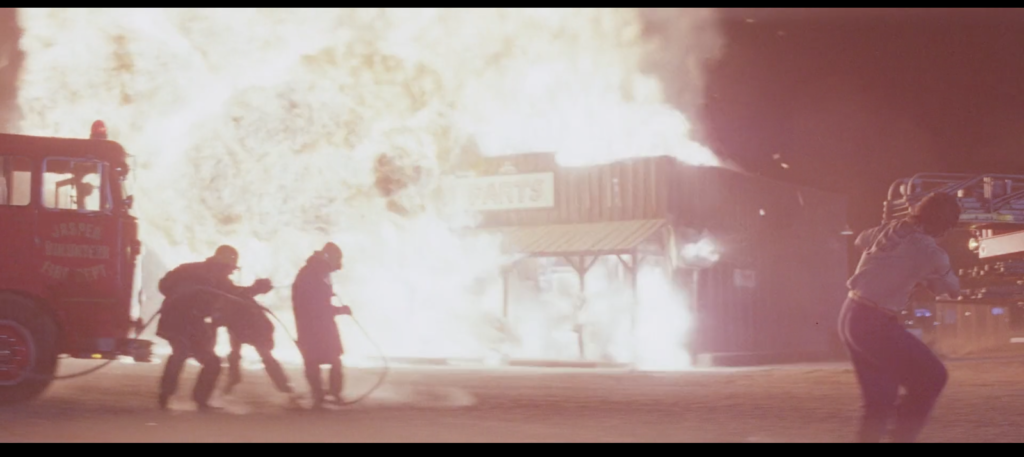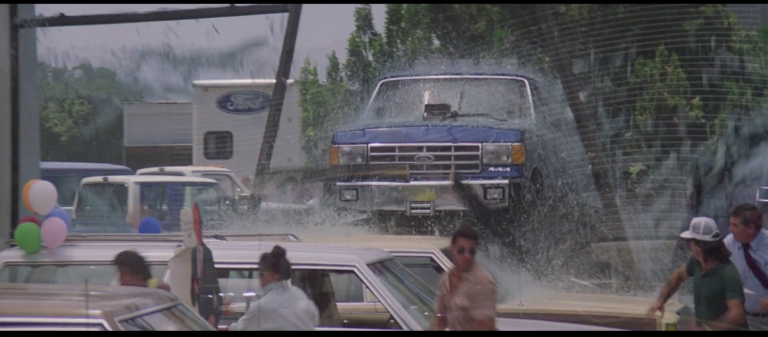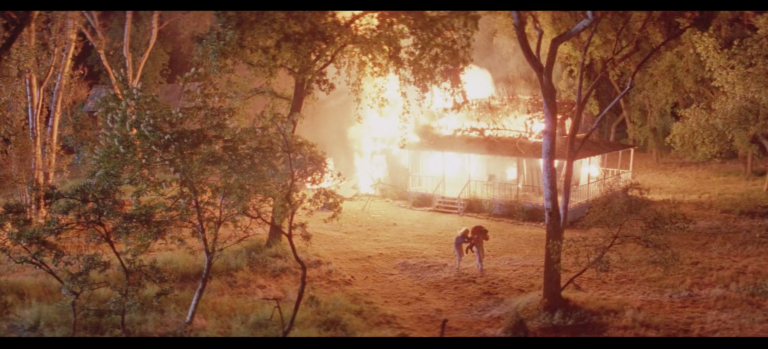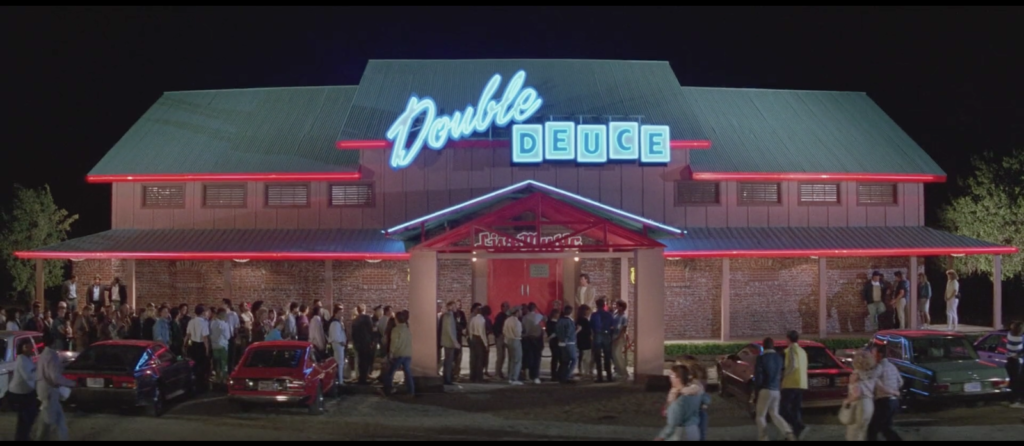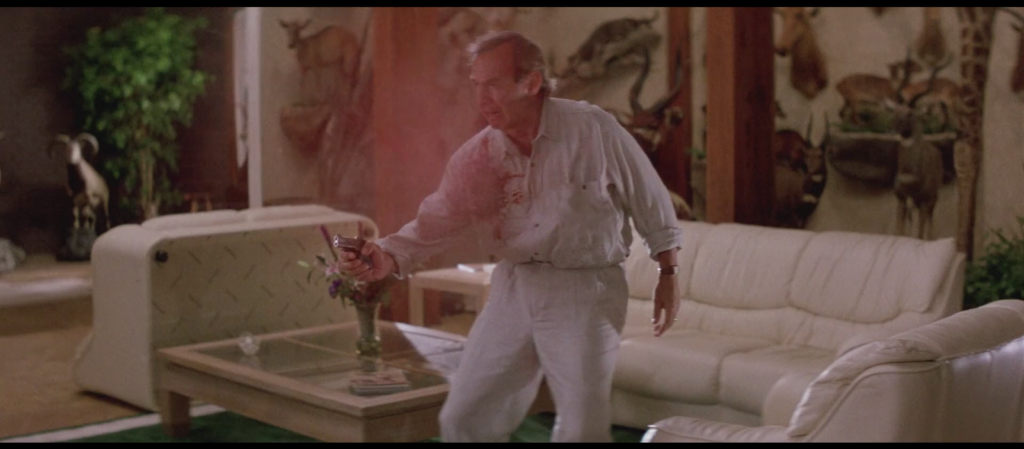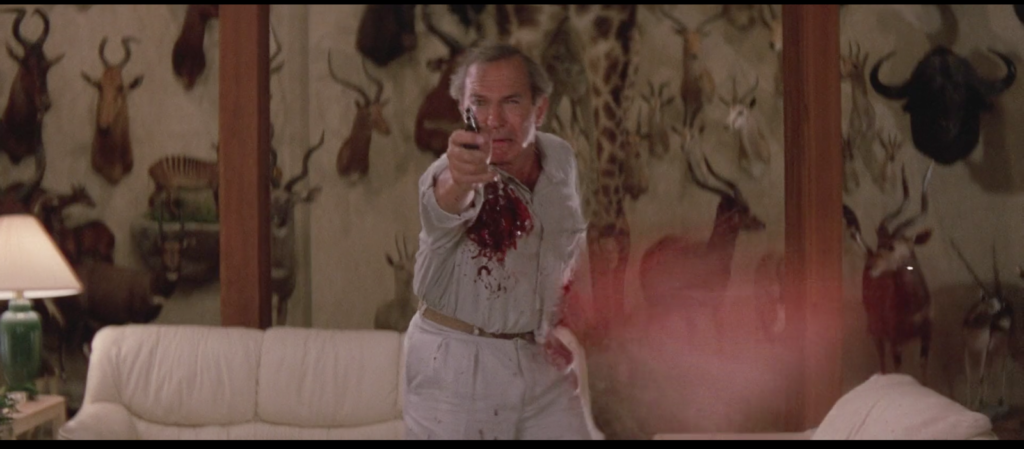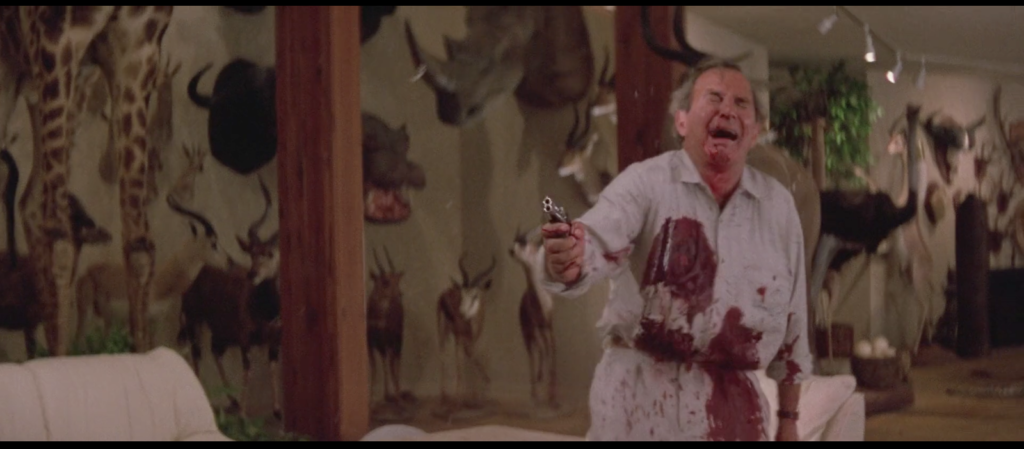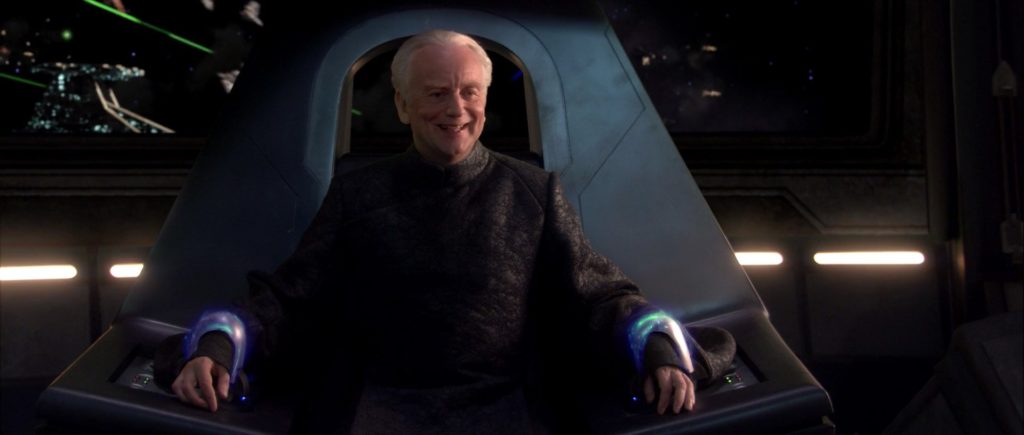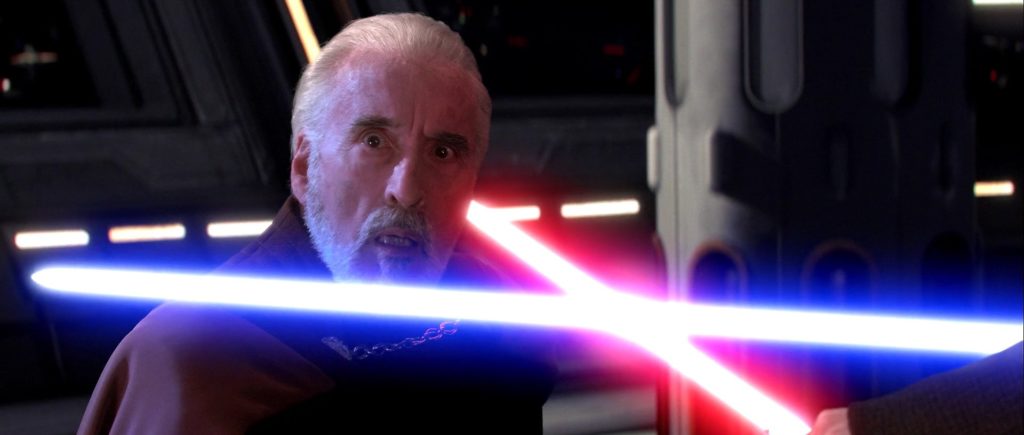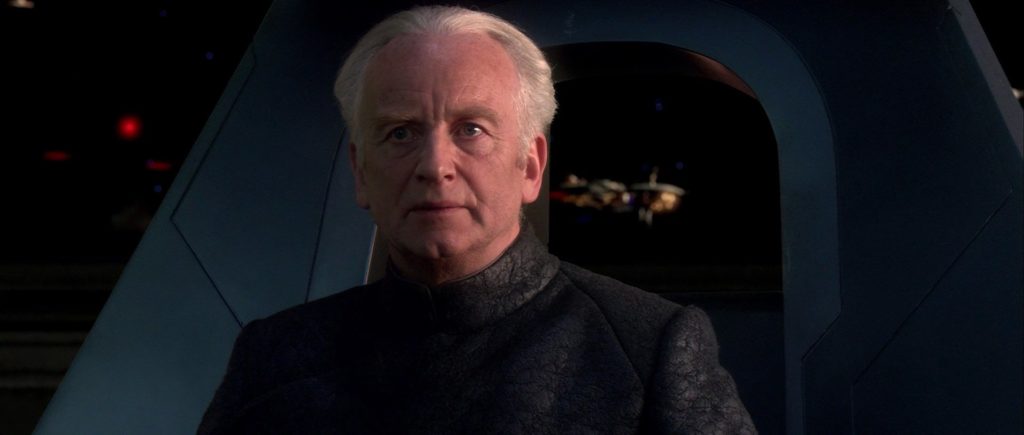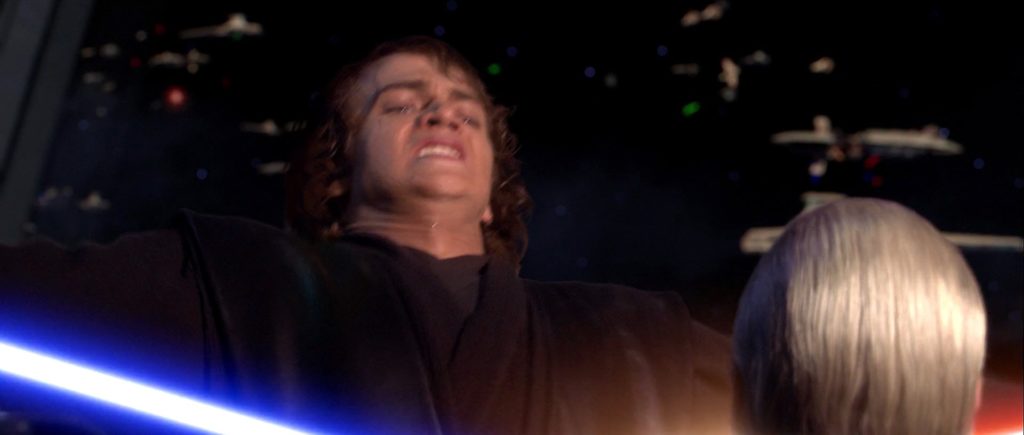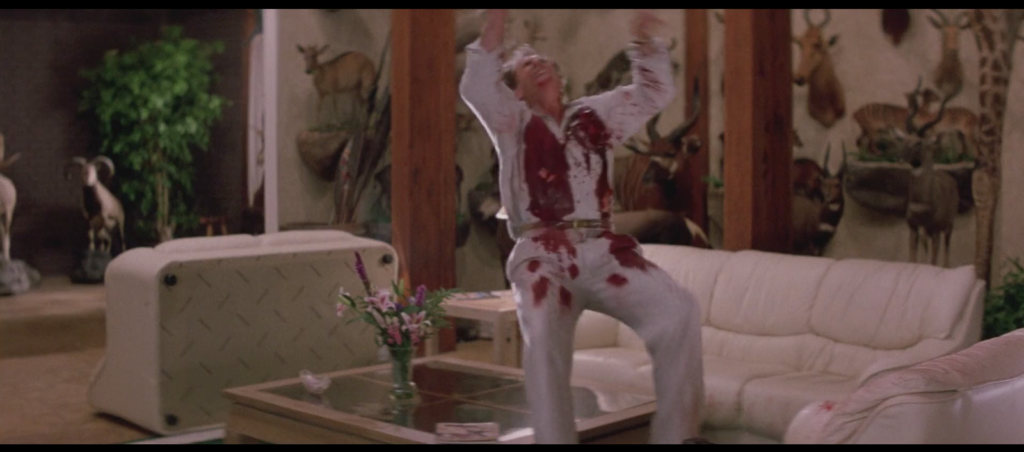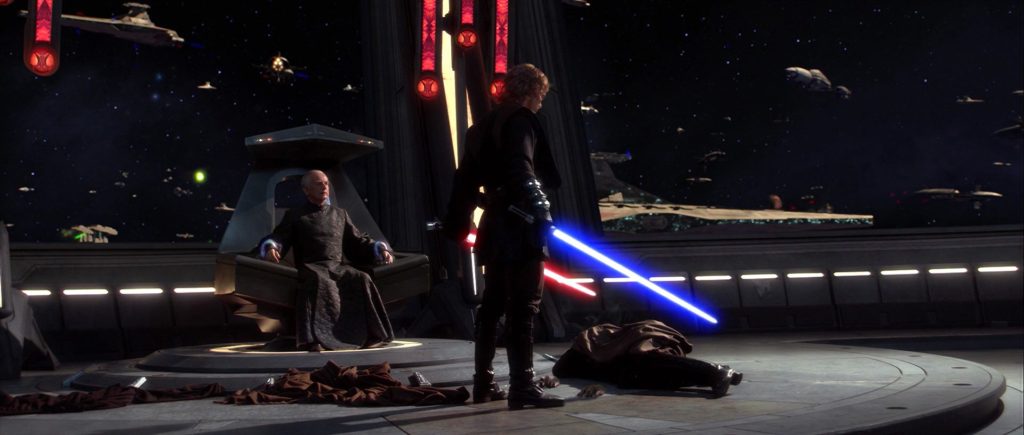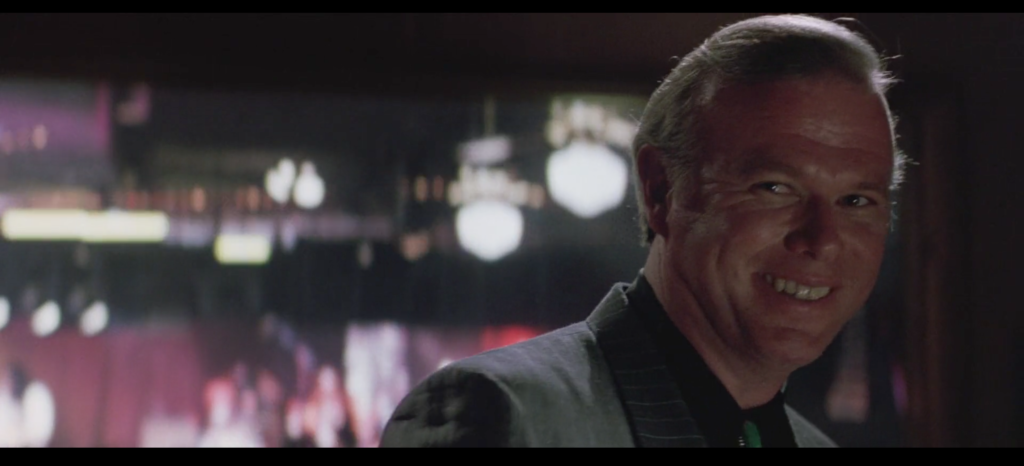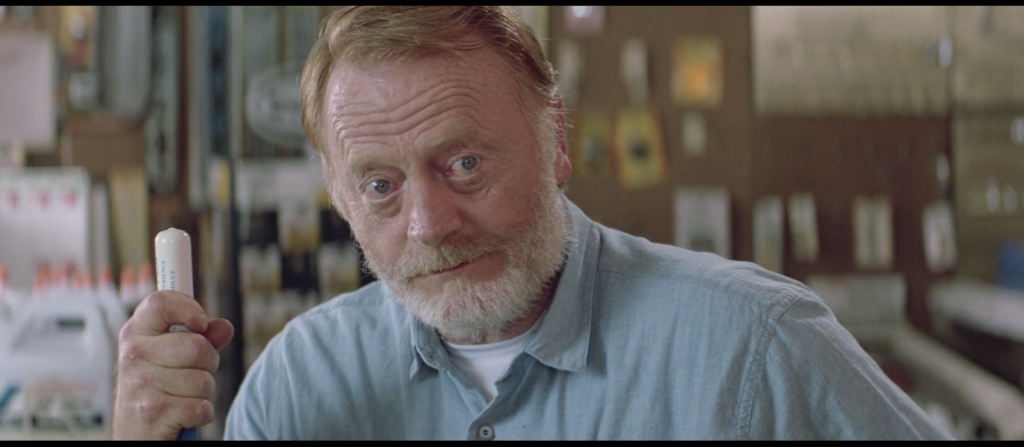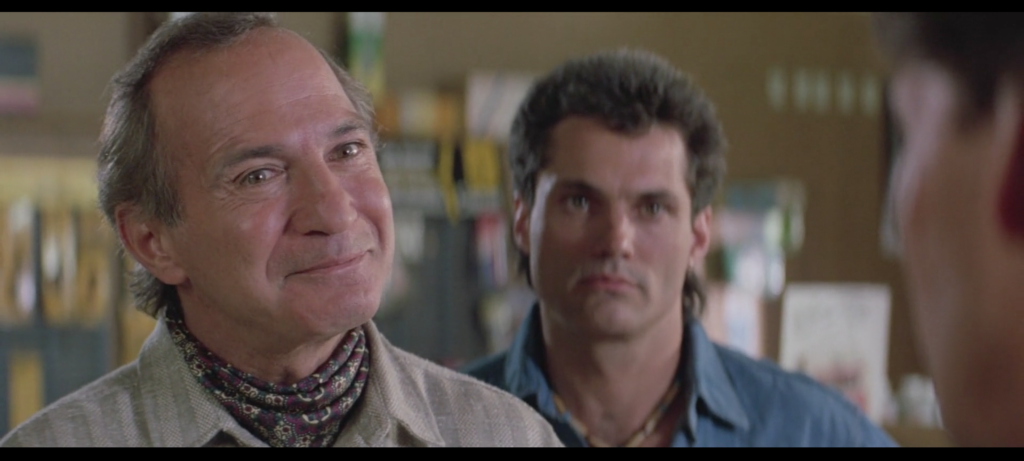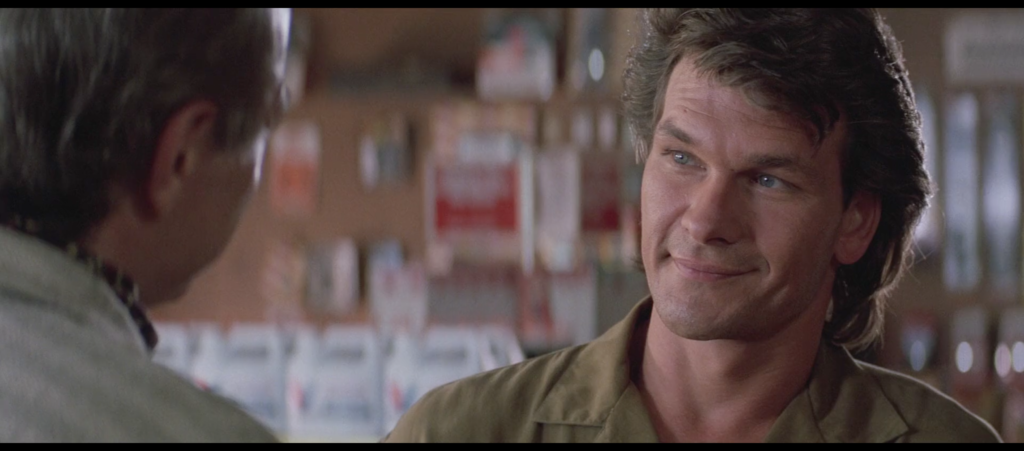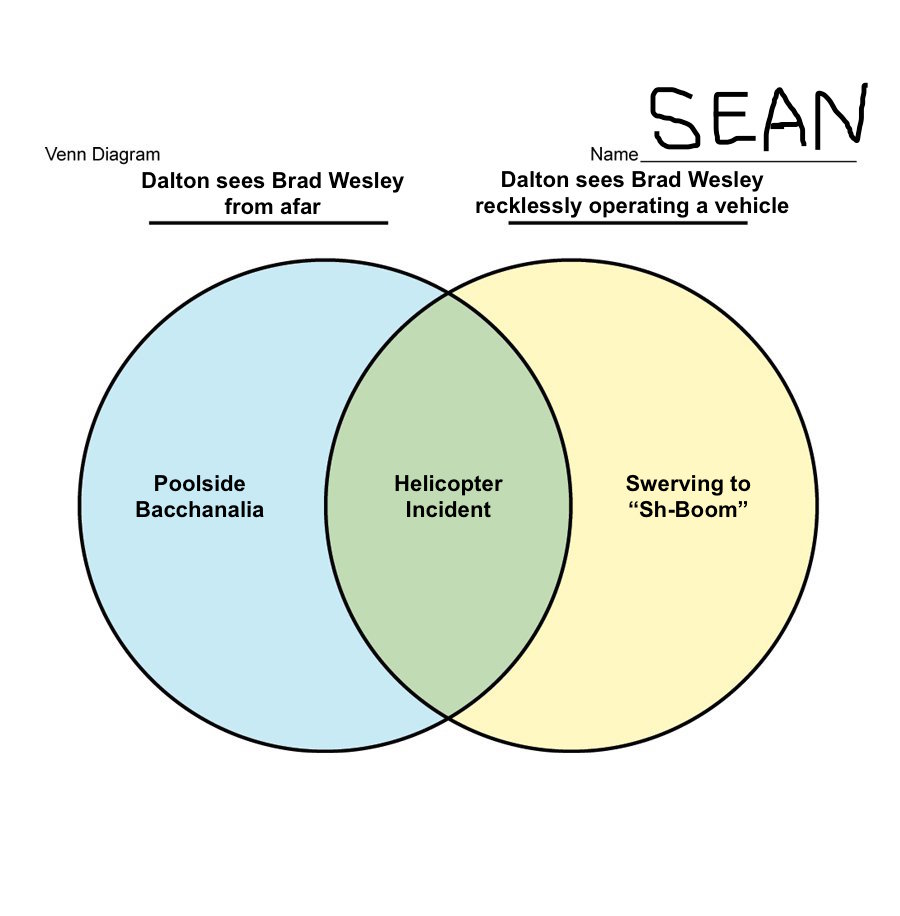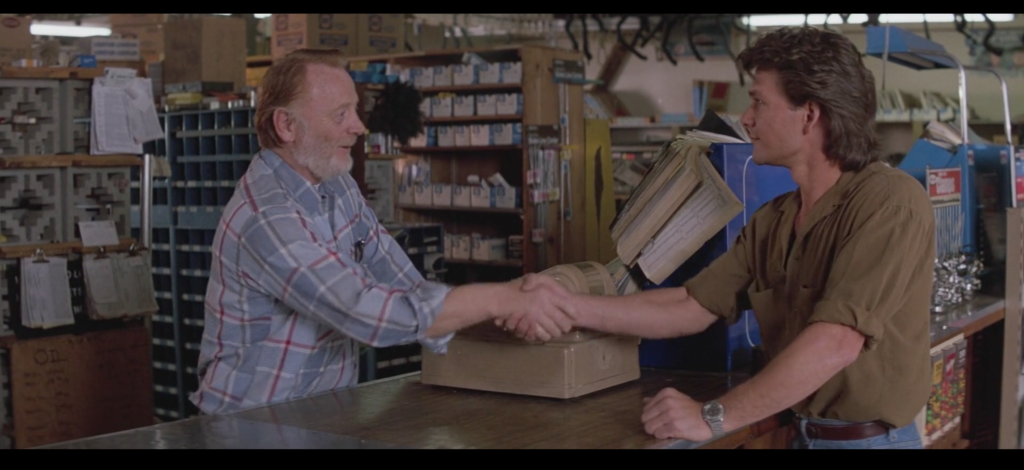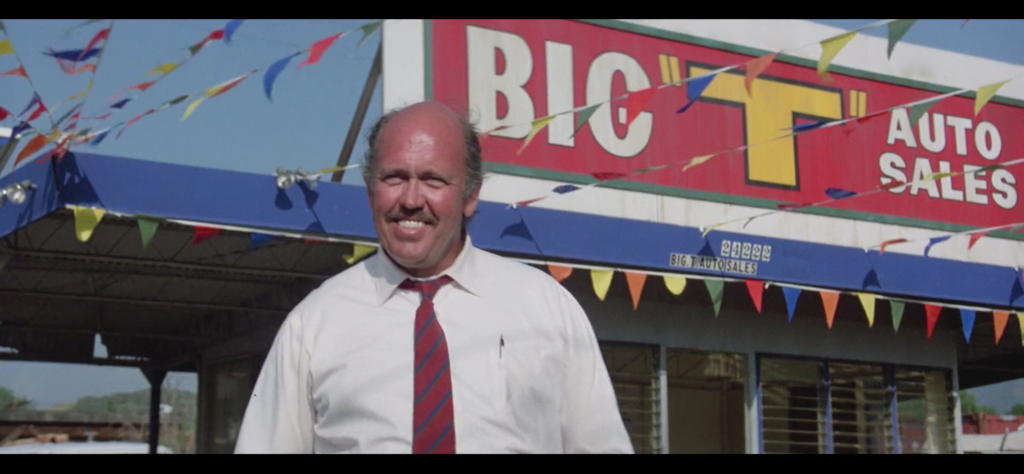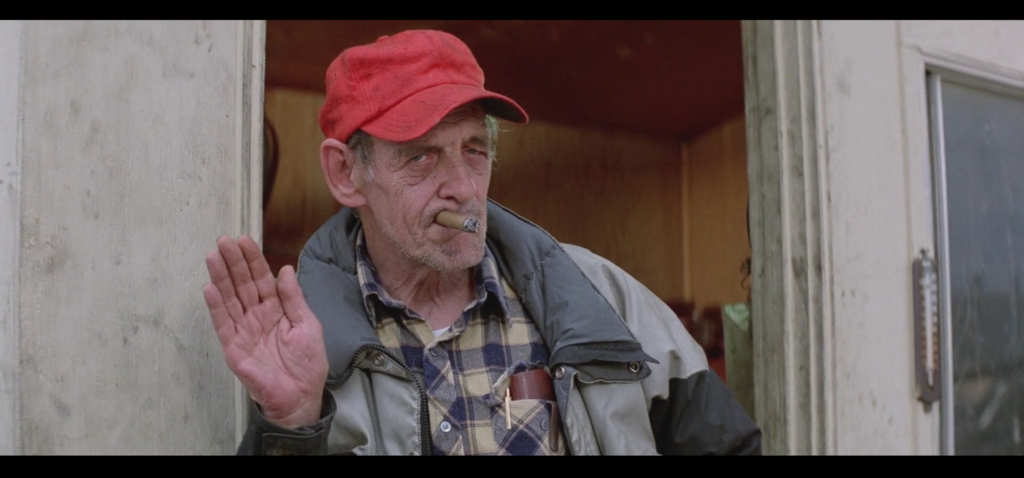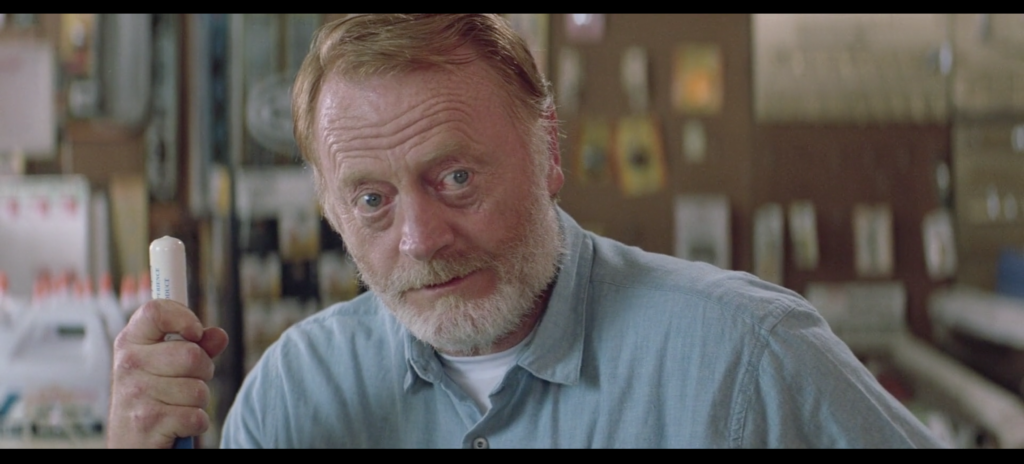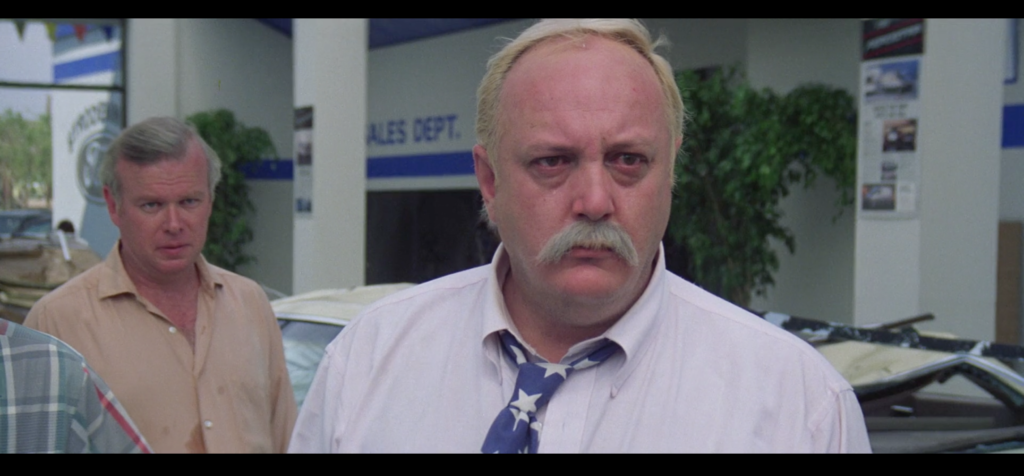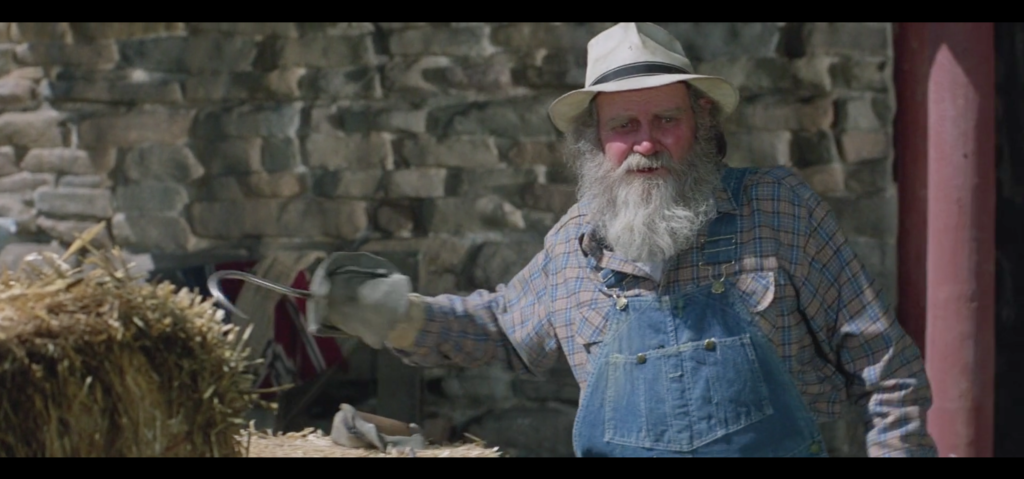Posts Tagged ‘red webster’
363. Red again
December 29, 2019“Tire irons? Sure, I got tire irons. Got more than I know what to do with, I suspect. Thought I’d be out of business for good when the place burned down. Blew up, more like, but that raises questions I ain’t sure I wanna answer even now. Anyways, turns out my niece got the place covered. Insurance got things up and runnin’ again, I guess, but it were the money from the Jasper Improvement Society’t made it what it is. Now I’m up to my eyeballs in tire irons. Hell of a thing. Who can explain it. Ah, I’ll tell you: Frank Tilghman, that’s who. When the smoke cleared after that bad bit o’ business with Brad Wesley, look whose name was on the Improvement Society’s paperwork? Oh, it’s all legal-like. Stipulation in the contracts saying whoever owned Jasper’s most lucrative business owns the Society too, lock stock and so on. Well, with my place in ruins, and Strodenmire still vacuuming up the shattered glass from what went down during Wagon Days, and Emmet’s moonshine distillery up in smoke, the Double Deuce was the last place standing. He gave me the loans, made the place ten times bigger and better than it ever was, and all I owe him is a piece of my soul. Makes you wonder how much ol’ Frank knew when he hired that boy Dalton to clean house. Him? Good kid. M’niece, she thinks he hung the moon and stars. Couldn’t come through in the clutch, though, when the time came. Left it to me and the other old farts to finish what he started. Then again, maybe that was part of Tilghman’s plan too. Make us all complicit, if you don’t mind me usin’ a Sunday puzzle word. Blood on everyone’s hands, so to speak. We’d’a gotten nowhere if it hadn’t been for Dalton taking out Wesley’s goon squad. Maybe that was the plan all along. Now instead of me kicking Wesley some money under the table, Frank Tilghman reaches across the table and takes it right out of my pocket. Thought about bringin’ it up with Dalton during a family dinner, but the kid had about as much as he could take, losin’ his mentor and all. Who’s gonna tell him he did it all for a worse villain than Wesley was? Not me. I seen enough men broken down to ever relish the idea of breakin’ down another one. Hell, I see one every time I look in the mirror. Don’t that beat all. In fairness, Frank lost someone close to him too. We all seen the way he looked at that Pat McGurn kid before things went south. Don’t know why he felt he had to keep it a secret. We’re a forgiving bunch. When the fire department discovered Emmet’s collection of hand-drawn erotica, why, we all just let it slide. Didn’t even tell him the Milo Manara influence was too pronounced, and that woulda been the god’s honest. And hell, when I was married, how do you think my wife found the ugly man she left me for? “The lifestyle,” that’s what we called it. I don’t know about the style part, not when the fella’s wearin’ crushed velvet shirts every damn day, but it was a life alright, that it was. Worked out for the best, I suppose. They’re ugly ‘n’ happy together, just like Dalton and Elizabeth are pretty ‘n’ happy together. ‘Together,’ that’s the important thing I guess. God bless ’em. Not that I’m a religious man, you understand. Been doin’ that tai chi with Dalton in the mornin’, though. Clears the head. Maybe that’d be the time to tell him about Tilghman. Hell, I dunno. That’s a sacred time, if you ask me. Probably best just to let it be. Like I said, some questions don’t want answerin’. Valvoline’s in aisle three.”
353. It is to laugh
December 19, 2019Pete Strodenmire and Red Webster can hardly contain their levity. And who could blame them? Tinker just said “A polar bear fell on me”! That’s objectively hilarious. Oh, sure, they just shot to death their nemesis of many years and are standing just feet away from his bullet-ridden corpse, one of five dead bodies currently festooning the property. And if they hadn’t opened fire, that man would likely have killed their friend Dalton, and quite possibly Dalton’s girlfriend and the dead man’s ex-wife Dr. Elizabeth Clay as well. And had that happened, it’s hard to imagine the blood-dimmed tide that would have swallowed Jasper, Missouri, as Brad Wesley used the fortune amassed from his commercial ventures to hire a new army of goons and seek vengeance on all those who aligned themselves against him. Pete and Red stood on a knife’s edge of carnage and did what needed to be done to prevent from tilting over into oblivion. This happened about ninety seconds ago. But now? Tinker said “A polar bear fell on me.” Ya gotta laugh!
349. “This is our town, and don’t you forget it.”
December 15, 2019Red Webster, Emmett, Pete Strodenmire, and Frank Tilghman have had enough of Brad Wesley. I mean, to put it mildly. Together they shoot him to death, though not before Tilghman turns Wesley’s “This is my town—don’t you forget it” back at him. The two men exchange a sort of slight smile after that. It’s the smile of men with secrets, if you ask me, though it would pass for an expression of resignation on one hand and triumph on the other to the layman.
Be that as it may.
The thing that strikes me about Brad Wesley’s death today is how quickly it follows the murder of his goons. The bodies of Morgan, O’Connor, Ketchum, and Pat McGurn are still warm, and Jimmy is probably just a few miles downstream, and blam blam blam blam, no more Brad Wesley. They were the iron fist with which Wesley ruled Jasper, from JC Penney to shining Fotomat. Take them away and the man is revealed as a paper tiger, albeit one capable of nearly murdering the best damn cooler in the business.
To put it another way, Brad Wesley fell when his goon squad was supplanted with another. Had Red, Emmet, Pete, and Tilghman joined forces earlier, perhaps they could have out-muscled Wesley’s muscle, or at the very least outgunned them. All they lacked was a fighting spirit, and Dalton gave that to them. It already was their town. All they had to do was rise up and claim it.
348. Death and the Doctor
December 14, 2019It’s hard to describe the cocktail of conflicting emotions Dr. Elizabeth Clay must be experiencing in this moment—the moment when her uncle, Red Webster, shoots her ex-husband, Brad Wesley, to save the life of her boyfriend, James Dalton. Just re-read that sentence and imagine yourself in your shoes. Here’s the kindly old man who raised you, and whom you moved back to Jasper after leaving the place so you could take care of him in his old age. He’s got a gun, and he’s just used it to shoot the man who—this is conjecture, but justified conjecture—you used to love, until you saw his ugly side. I’d imagine, given what we see of his treatment of Denise, that physical abuse was involved, since I doubt Denise was his first victim and since it would explain why the Doc skipped town instead of merely divorcing him. This man, with whom you once envisioned your future, has used your appearance on the scene to pull a gun with which he intends to shoot your current love interest. Only he’s not quite your current love interest at the moment, is he? The night before you watched him murder a man, tearing his throat out with his bare hands. Earlier today he tried to physically drag you out of town with him before you broke free and told him you had no intention of going anywhere with him. You’ve arrived just in time to watch him decide not to repeat this act, this time tearing the throat out of your ex-husband. Maybe you felt relief in that moment, but only briefly. Brad ruined it by pulling that gun, and Uncle Red ruined it by firing his. Three of the most important men in your life, locked in a dance of death.
And of course, it’s not over yet, no matter what Brad said. Three more men will put bullets in his body before he finally collapses through a glass table and dies. They include your boyfriend’s nominal boss—the reason this feud started—and his nominal landlord—who provided him with the place where you and he first made love. They also include a Ford dealer whose dealership you watched Brad Wesley demolish. Afterwards you and he had a talk, during which you attempted to appeal to the better angels of his nature, to no avail. The last thing he said to you was a threat against your boyfriend, right there near the rubble of Strodenmire Ford. The last thing he’ll ever say to you was that threat against your boyfriend, thanks in part to Strodenmire, who is participating in Brad’s murder before your very eyes.
And you abhor violence, don’t forget that. You’ve mocked Dalton’s tough-guy posturing to his face, on your first date no less. You broke up with him, kind of, because of the murder he committed last night. So you’re watching your own worst nightmare play out, again, involving men you’ve cared deeply about.
If you were Dr. Elizabeth Clay, could you ever recover?
347. “It’s over!”
December 13, 2019Oh Brad, when will you learn. In the time it takes for Wesley to grab his fallen gun and turn it on Dalton while Dalton is distracted by Dr. Elizabeth Clay’s arrival, Doc has the chance to scream “No!” and Wesley himself gilds the lily by shouting “It’s over!” Which it is, but not in the way he intends.
It’s over because Red Webster, Dr. Elizabeth Clay’s uncle, has mortally wounded her ex-husband in order to save her (ex?-)boyfriend. That’s one more thing Wesley allows to happen because he’s too busy bantering to pull the goddamn trigger. It’s one thing to be chatty when you’re roughing up one of your own hapless employees; O’Connor isn’t going to put up a fight while you call him a messy bleeder, and none of your other goons is going to come to his aid.
But Dalton is a different story—a story of kindness, of friendship, of being the best damn cooler in the business. He’s made friends in this town. And though perhaps Brad Wesley can be forgiven for not expecting five of them to suddenly materialize in his basement, four of them carrying shooting irons, why take a chance?
283. Whose house? Red’s house
October 10, 2019You can skim through your copy of Road House after writing about Road House for over two hundred and eighty days straight and still catch the occasional detail you’ve never noticed before. Case in point: Red Webster’s mailbox. Just in case you were looking for one of the other R. WEBSTERs in Jasper, I suppose, Red has tricked his mailbox out with hubcaps. Not content with owning and operating an auto parts store, Red brought his work home with him, then made it a part of his home. It makes you wonder if the other luminaries of Jasper society have done the same. Is Frank Tilghman’s mailbox festooned with broken tables? Does Pete Strodenmire’s say “WELCOME TO WAGON DAYS”? Does Dr. Elizabeth Clay’s come in the shape of a colonoscopy x-ray? We may never know; in fact I’ll go so far as to say we will never know; but the beauty of Road House is such that the doors to these possibilities are opened and never shut.
272. The Drawing of the Four
September 29, 2019Boardwalk Empire, Terence Winter’s underrated Prohibition Era gangster drama, featured many real-world figures of underworld renown, though mostly at ages much younger than the ones at which they’d become famous. They’d be mixed in with entirely fictional characters, or heavily fictionalized analogues of actual people. Often you didn’t realize until halfway through a scene that, oh my god, that’s Lucky Luciano and Meyer Lansky and Bugsy Siegel and Al Capone all hanging out together. The resulting frisson was a thrill.
In his lamentable mega-series The Dark Tower, Stephen King officially introduced the concept of ka-tet, a group of people drawn together by the benevolent force that partially orders the universe for a specific purpose. I say “officially” because if you’ve read his work you know that this is a recurring feature everywhere from It to The Stand. Often the characters themselves recognize that something has happened when they’re all finally assembled together—that the final piece of a puzzle they didn’t even know they were solving has slipped into place, that the whole of them is somehow greater than the sum of its parts, that when faced with other people there’s a palpable sense of belonging and un-belonging. Great deeds can be done in ka-tet.
Here you see Emmett, Red Webster, Frank Tilghman, and Pete Strodenmire, together for the first time. Until now Emmett had never been seen off his ranch, and Strodenmire had only been seen one time before in total. They’re watching Brad Wesley walk away, having proclaimed “This is my town—don’t you forget it.” Red is about to bust Strodenmire’s balls by repeating what Strodenmire said to him after his auto parts store was destroyed: “You got insurance, don’t you?” Tilghman is, as always, very peculiar.
Yet something looks right here, doesn’t it? Something about this configuration of four weird old men staring into the middle distance rings true. When ka-tet is formed, how can any JC Penney magnate hope to stand against it?
265. Fear itself
September 22, 2019Frank Tilghman is having scotch on the rocks at the “village worthies meet at Red Webster’s house as he packs up to move following the destruction of his place of business and the subsequent barfight instigated by the arsonist” function, as a totally normal innocent normal man could be expected to do. But he has more to offer than the jolly sound of ice tinkling in his glass. “You scared him last night,” he says to Dalton regarding Brad Wesley, who we’ve just learned from Red Webster has the police department in his pocket, hence the lack of official inquiries when people are beaten half to death in front of hundreds of other people. “Brad Wesley, he’s not afraid of anything, right?” he asks rhetorically. “Well, last night, that son of a bitch was afraid.”
“No he wasn’t,” Dalton retorts, smiling. Normal conversation with normal reactions all around.
Dalton is right, of course. Brad Wesley oozed confidence out of every pore in the Double Deuce the night before. He had his girlfriend or kept woman or whatever poor Denise is strip to prove his prowess. He then ordered his boy Jimmy to fight the bouncers and Wade Garrett for the same reason. Finally, he fired a gun to call the fight off, showing that the action starts and stops on his say-so. He really could not have been more empowered, and more sure of his empowerment, even before we get to the whole “getting away with arson” thing. Christ (as Wesley would say), he went to the Double Deuce for the express purpose of rubbing his role in the arson in everyone’s face!
So once again we must wonder, what’s Tilghman’s angle here? Why is he having a drink? Why is he smiling? Why is he touting a nonexistent weakness in Brad Wesley’s armor to the man he wants to attack that nonexistent weakness? Why would he instigate further hostilities given the tremendous cost incurred by everyone involved other than himself?
264. The Council of Elders
September 21, 2019The destruction of Red Webster’s Auto Parts by the coward Brad Wesley triggers alarm bells for the Jasper Chamber of Commerce, or whoever the assembled worthies in the scene that follows the morning after the bar fight are supposed to be. Red and Tilghman, sure, they’d be there. Dalton, why not, he’s obviously the focal point for Brad Wesley’s anger. Doc is Red’s niece, and as the ostensible purpose of the meeting is to persuade him not to pack up and run away from town it makes sense she’d be there. These other fellows? At this point it’s anybody’s guess. So let me be the first to assure you that you will never see the two gentlemen in the background ever again. Who are they? What do they think? Are they Fotomat and 7-Eleven franchisees who got into bed with Brad Wesley and are now feeling buyer’s remorse? Does maybe one of them own the boat store that forms the third point of the Double Deuce/Red’s Auto triangle? Why isn’t Emmett here? What about Big T of Big T Auto Sales, or the crusty guy who sells Dalton spare tires, or the crusty guy who runs one of the several greasy spoons Dalton visits, or anyone we’ve ever seen before? We will never know. Accept the mystery.
But the mustachioed fellow in the ill-fitting gray suit in the center? Ah, so you’ve met Pete Strodenmire. We are currently one hour and twenty-four minutes into the film, with half an hour to go; what better time to introduce a major new character—as well as the fourth and final Car Salesman of Jasper, Missouri—who will go on to participate in the killing of the film’s antagonist? He does little of equivalent efficacy here. He just asks Red if he has insurance and offers to contact a friend in the FBI in Springfield about the arson in order to work around Wesley’s control of the local constabulary. Red truly does not want to hear about either proposal. So in its way this film is setting up our next encounter with Pete just a few minutes hence, when he proves as unable to stop a monster truck from running over his car dealership as he is to talk Red off the ledge here.
One final note here: Can you guess which august personage here assembled wants to continue the fight?
Now why on earth would that be? We wonders, precious, we wonders.
247. “Play something, Elvis!” or wheels within wheels
September 4, 2019“It’s like a morgue in here,” observes Brad Wesley of the mood in the Double Deuce. When you blow up a local business it’s hard to blame the locals for failing to be festive, but that’s Brad Wesley for you, a man who muscles car dealers for protection money by day and throws shit-happens-when-you-party-naked moonlight swims for his goons by night. Hell, he swerves all over the road by day too, so in a sense the party never stops.
Thus, his command to the band: “Play something, Elvis!” He’s looking right at all three members of the Jeff Healey Band when he says this. You’d be hard pressed to line up three white men who resemble Elvis less, but one gets the sense that Brad Wesley has, as so many older men do, calcified ideas of what constitutes a good time in every respect, music included. A rock and roll singer? Elvis. An actor? I’m guessing John Wayne. I wouldn’t be surprised if Wesley’s entire pop-culture cosmology consists solely of people Public Enemy warned us about in “Fight the Power,” “the Power” excluded of course.
Just after his command, which goes unheeded for a few moments, Wesley makes another proclamation: He tells no one in particular to “Get those firemen in here—I want to buy them a drink!” Seems like the least he can do to pay them back for the arson.
But for Wesley, the blame rests squarely on the shoulders of the arsonee, not the arsoner. “Risking their lives for that no-good faggot draft dodger Red Webster” is how he describes the firefighters’ duty that grim night, opening up alllllll kinds of yeeesh-inducing questions about Wesley’s politics, none of which have happy answers. Note that Wesley’s subsequently expressed complaint about Red is that he doesn’t chip in to improve the town like everyone else; knuckling under to Brad Wesley’s protection scheme is the traditionally heterosexual thing to do, apparently.
Red, you’ll recall, moved to Jasper twenty years ago, because he got married to an ugly woman from the area and fell in love with the place even as she fell out of love with him. Actor Red West (yep) was born in 1936, and assuming Red Webster is the same age that would make him 32 or 33 years old in 1969 when the marriage took place—well past the age of conscription, even given that the marriage exemption had been lifted by LBJ some years prior. At any rate, Jasper, Missouri is not exactly Canada, and it seems unlikely that Red had connections who could make a bone-spur deferment materialize for him even if his number came up.
What about Korea, then? We know from Brad Wesley’s big breakfast monologue that he served in that hot Cold War conflict, and from that we could assume he’d take especial umbrage at anyone who managed to weasel out of the service. But Red would only have been in his mid-teens during the Korean War, again placing him out of range of the draft.
All that remains to us, then, is peacetime conscription in the interwar years. And who was the most famous draftee during that time period? A man named Elvis Presley.
And who was in Elvis’s entourage, very much in real life? His old high-school chum Red West. Who was drafted too—and appeared in G.I. Blues, a movie in which he and Elvis were soldiers.
Play something, Elvis. “Reveille,” perhaps.
242. Hats Off to (Red) Webster
August 30, 2019Red Webster’s pickup truck pulls up too late. His auto parts store has already exploded, and when I said yesterday that the fireball reached 100 feet into the sky I may have sold it short by as much as 100%. Perhaps he had sticks of dynamite there among the bottles of motor oil. Whatever the case, this is destruction on a scale Jasper, Missouri has likely not seen before, unless there was an auto parts store on the land Brad Wesley earmarked for the JC Penney. Even a seasoned war dog like Dalton can only stand there and stare, rueful and aghast.
Understandably, Red Webster himself is a sight more emotional than his niece’s new fella. He expresses his extreme dismay the way anyone would, if by “anyone” you mean people who just lost at the dog track, or the coach of the rich kids camp’s baseball team in an ’80s movie, or the Mayor of River City right after learning that Professor Harold Hill has turned the townsfolk against his new pool table at the billiards parlor: He takes hat off and throws it on the ground. That’s his life’s work that just went up in a gout of flame, and his reaction is an emphatic dagnabbit.
204. Talking Dirty
July 23, 2019So here’s the game Dalton lays down in the run-up to sexual intercourse with Dr. Elizabeth Clay. He speaks first.
<switches on “These Arms of Mine” by Otis Redding>
<takes off jacket while stalking Doc backwards around the room>
“So I saw your picture in Red Webster’s place.”
“He’s my uncle.”
“Nice old guy.”
“He raised me after my parents died. It’s why I came back here. Now we take care of each other.”
“So how come you never got married?”
“I did.”
“What happened?”
“Didn’t work.”
“Why?”
“Guess I picked the wrong guy.”
The next thing you know, and I mean the next thing you know, both Dalton and Dr. Elizabeth Clay have exposed their genitals to one another.
You think I’m fucking around here? Watch the damn sex scene. He puts on the song, he starts backing her up around the room while taking off his jacket, he brings up an old man, she talks about how he raised her after the death of her parents and how she moved back to town to take care of him, he asks her why she never got married, she says she did but it didn’t work out, and bam, they whip out each other’s junk before they so much as kiss.
Excepting actual real-world atrocities I think you’d be hard pressed to find topics of conversation less erotic than what Dalton goes with while he’s clearly mustering up an erection he intends to insert into his willing partner. “Why does a crusty old fart have your picture on his wall” and “Why are you a spinster.” Guaranteed panty-droppers, huh?
But let’s not discount her replies. “My parents died when I was just a kid” and “I have elder-care responsibilities” and “I’m divorced,” says the woman who showed up at his work and went back to his place with the express intention of banging him. That’ll get a fella’s engine revving!
People focus on the Otis Redding, the accessing each other’s engorged genitals without kissing first, and the stand-up sex against a wall made of large rocks. It’s hard to blame them for that. And it’s not as if their body language and facial expressions track with what they’re saying in any way, so if you’re focused on that, which, look at them, why wouldn’t you be, then it’s understandable that you’d miss the chatter. But foreplay conversation that could fell a tree and reduce a swamp to a dust bowl should be included in any connoisseur’s discussion of the sex scene from Road House. After they say what they say it’s a miracle of the Dalton Path that they’re able to have sex at all.
180. Three Imaginary Boys
June 29, 2019Brad Wesley is not the only character in Road House in whose eyes Dalton is but a boy. Three others label him as such, and they could not be more different in tone and intent.
First up is Red Webster, one of the Four Car Salesmen of Jasper, Missouri. An avuncular presence in the film—literally: He is Dr. Elizabeth Clay’s uncle—he asks if Dalton is “the boy from the Double Deuce” when our hero shows up at his store before it opens to have various parts of his car replaced. Just a friendly, getting-to-know-you inquiry, from a guy calling another guy “boy” because he’s younger and he’s just arrived in town. Here, “boy” connotes “newcomer,” someone who is experiencing the world around him with fresh eyes, and who finds himself welcomed by those around him. Excepting the clientele of the Double Deuce as currently constituted, of course.
Next is Jimmy, Brad Wesely’s right hand and bastard son [source for this claim?]. “Your ass is mine, boy,” he growls, gesticulating for emphasis in case the owner of the ass of which he is claiming emphasis was unclear. Wesley has just stopped Jimmy from taking on a roughed-up Wade Garrett and a fresh-to-the-fight Dalton 2-to-1 in the Double Deuce, the night Wesley’s men blow up Red Webster’s store and Denise does an aggressive striptease to further assert Wesley’s dominance or something. Here, “boy” means a man less experienced, less tough, less dangerous, less of a man; Jimmy will use the term again when he sneers at Dalton’s fighting prowess during their eventual mano a mano showdown. (His father, spiritually anyway if not biologically, Brad Wesley will pick up the ass-owning baton and run with it, by the way, but not before Jimmy returns to that well implicitly when describing what he used to do to guys like Dalton in prison.)
The third and final boy-sayer is Wade Garrett. Staggering into the Double Deuce the night after Dalton kills Jimmy, Wade has been badly wounded in a fight with three unspecified Wesleyan goons. Dalton realizes that if Wade is still alive, it could be that the hammer is slated to fall on Elizabeth. He rushes out to find her, but not before assuring Wade that he will grant his mentor’s wish at last: They will leave this town and never look back, allowing Wesley to win rather than keep up a fight that by rights isn’t theirs. Wade looks up at the younger man and smiles. “Attaboy, mijo,” he says. Mijo, of course, means “son”; this is the “boy” of approval, of pride, of love. This is the “boy” of a dying parent’s love for his only child.
145. Niece
May 25, 2019“Oh, that there? That there’s my niece. Helluva gal. Doctor, you know. Put her through medical school. I ever mention that? If I were a bettin’ man, and I ain’t sayin’ I ain’t, I’d put my money on ‘Yes, Red, you’ve mentioned that.’ What can I say? Ain’t every uncle knows people are out there livin’ and breathin’ on account of what your money helped teach your brother’s daughter to do. You do that, you shout it to the world. Not for them you understand, but for you! It’s healthy to give yourself three cheers now and then. Nobody else gonna do it for you. Ah well. Them’s the breaks. Now you strike me as the strong silent type. Not much for talkin’ yourself up. Man o’ your reputation doesn’t need to do his own advertising. Tried my hand in the ad game myself one time. I know, I know, it sure don’t look that way when you look around this ol’ place, but that’s just because I doubt ol’ Emmett gets the Pennysaver delivered out his way. If’n he did you’d take a look at it on that porch o’ his one mornin’ and say ‘Now that Red Webster, he’s one old geezer can make his copy *sing.*’ Yep, do it all m’self: writin’, layout, photography, the works. Price the damn sales too, naturally, and not with one o’ them fancy calculators they’re makin’ over in Tokyo or that Silicone Valley, or even down in Texas with them instruments. World’s smallest violin, that’s the only instrument a Texan’s ever played for me. Hell, I deserved it. Long story. Water under the bridge. Used the same camera to take that pic of Elizabeth as I do for all the ads, too. Now don’t get me wrong, I like the shop, I really do. Otherwise I’d just sell to Brad Wesley in toto and get the hell outta Doge. In a Dodge. Fancy that. Funny thing about Wesley is I took that picture of her the day she heard back from the county clerk that they’d finalized h—well. Not my place to say really. You ever get the chance to talk to her about that picture, why she looked so damn beautiful and serious and strong, best just sit back and let her do the talkin’. That was a day alright. Camera’s seen me through a lot, y’know. Lotta memories I mighta forgot otherwise. Nothin’ fancy, that camera. Coulda upgraded over the years I suppose, back before Wesley got his hooks in the place. I just never saw the upside to payin’ more money for a fancier version of what already worked perfectly fine. Don’t know why people ever do it any different. Thing about technology—it’s a glitterin’ lure. But once in a blue moon you can really hit folks where they live if you show ’em somethin’ they’re already fond o’ seein’. Worked at a furrier once. First job. In-house. Boss was this old-pro copywriter. Teddy, his name was. Greek. Don’t that beat all. This Teddy, he says to me ‘Red, the word you need first in your vernacular is
“new.” You give ’em the itch for new and it ain’t a matter of if they’re gonna scratch it but when. The new thing’s calamine lotion, plain and simple. But you really wanna glue the people and the product together, there’s another word you’d better learn: Nostalgia.’ Delicate thing. Potent. Pain from an old wound. That’s what it means in Greek, Teddy tells me anyway. Twinge in your heart. Leaves plain ol’ memory in the dust. That camera, it’s my time machine. Forwards, backwards, don’t matter. Anytime I got the ache to go someplace I wish I never left but can’t get back to, place makes me feel like a child, place that feels like home, I head to the darkroom. If there’s any place in God’s creation I know I’m loved…well, you’re lookin’ at it right there. Behind my niece, I mean. That’ll be $17.48 with tax, Mr. Weiner.”
120. Life Is Good, or The Apotheosis of Karpis
April 30, 2019For the past week I’ve chronicled sixty seconds in the lives of Mr. Wade Garret and Dr. James Dalton. (For the purposes of this conversation I’m assuming his degree in philosophy from NYU was a Ph.D.) During this pivotal minute, Dalton calls his old friend and mentor Wade to ask if he’s heard anything about a guy by the name of Brad Wesley. At this point, friends, you and I have talked about Dalton’s initial encounters with the richest man in Jasper: watching him buzz Emmett’s horse corral with his helicopter, swerving out of the way as he sings doo-wop while driving into oncoming traffic, shaking hands and having a brief conversation at Red Webster’s auto parts store, beating the shit out of several of his minions after they try to stab him to death in an attempt to make the Double Deuce re-hire a bartender. I’d say he’s handled all this rather well. What, you might be wondering, occasioned his call for counsel?
These happy assholes.
Dalton catches two of Brad Wesley’s premier goons, Jimmy and Karpis, just as they pull out of Red’s parking lot. Karpis, whom we see exiting the store, has just busted the place up, spilling various motor oils and antifreezes and whatnot all over the place as punishment for Red’s recalcitrance in paying his full “contribution” to the Jasper Improvement Society, the legal name of Wesley’s protection racket.
“Work ain’t work when you’re havin’ fun,” Jimmy says from behind the wheel of the getaway car as Karpis hops in after doing the deed.
“Life is good,” Karpis confirms.
And like that—poof—he’s gone.
One last, lingering, smoldering staredown at Dalton later, Karpis is driven away from the store and right out of the movie, forever. It’s the last we see of him, much to my chagrin, handsome devil that he is.
But oh, his legacy! What Karpis does this day puts Dalton and Wade on a collision course with Jimmy and Wesley, their opposite numbers. The explosion that results, which includes multiple literal explosions, will leave three of those four men dead, and change the face of Jasper forever. And Karpis’s mesmerizing face that sets it all in motion. In that Cheshire Cat grin, I see the future: Life is good, but all men must die.
099. The Phantom Menace
April 9, 2019WESLEY: This is my town. Don’t you forget it.
DALTON: So what does he take?
RED: Who?
DALTON: Brad WesIey.
RED: Ten percent…to start. Oh, it’s all legal-like. He formed the Jasper Improvement Society. All the businesses in town belong to it.
DALTON: You’ve gotten rich off the people in this town.
WESLEY: You bet your ass I have. And I’m gonna get richer. I believe we all have a purpose on this earth. A destiny. I have a faith in that destiny. It tells me to gather unto me what is mine.
RED: Twenty years I’ve watched Wesley get richer while everybody else around him got poorer.
TILGHMAN: Anyway, I’ve come into a little bit of money.
TILGHMAN: This is our town. And don’t you forget it.
088. Hobbyhorse
March 29, 2019Few of Road House‘s many would-be idioms and aphorisms are afforded as grand a debut as, arguably, the dumbest of them all. You can thank Red West, the actor who plays Red Webster (you can’t spell “Red Webster” without “R-E-D-W-E-S-T”), for that. The man sells every line of down-home wisdom and ain’t-that-a-kick-in-the-head fatalism like Pete Stroudenmire sells roomy family-friendly vehicles during Wagon Days. You can of course also thank Rowdy Herrington, the film’s director, and John F. Link and Frank J. Urioste, the film’s editors, who grind everything to a halt so Red can deliver it almost right into the camera before a hard cut to the topless bar where we first meet Wade Garrett. The line all but takes off its own top and dances around on stage in a g-string, that’s how much attention it gets.
Ah, what line, you ask, and I’m glad you did.
Picture it: Jasper, Missouri, 1989. A young cooler, new in town, visits the small business owned by Red Webster, uncle of the most beautiful woman he’s ever seen. Red keeps a black and white glamour shot of his niece on the wall of his workplace, piercing the young cooler’s heart, and raising more questions than it answers. On the way into the store the cooler passes by two extremely handsome goons, who stare at him and smile, like crocodiles eyeing a wildebeest at the watering hole, or like Brad Wesley looking at literally anything at any point in the whole movie. The cooler discovers that the store has been ransacked. Frightened, he turns to the uncle of the woman he loves and says…
DALTON: What happened? Did you get robbed?
RED: Every week.
Dalton pauses to contemplate the sultry black and white photo of Red’s niece hanging on the wall next to his business license, the two cornerstones of any successful enterprise.
DALTON: So what does he take?
RED: Who?
DALTON: Brad Wesley.
RED: Ten percent—to start. Oh it’s it’s all legal-like. He formed “The Jasper Improvement Society.” All the businesses in town belong to it.
DALTON: Everybody pay?
RED: [LOWERS SHADES TO LOOK YOU DEAD IN THE EYE] Does a hobbyhorse have a wooden dick?
Oh it’s all aphorism-like. “Does a bear shit in the woods?” “Is the Pope Catholic?” This is supposed to be a question like that, one that all but answers itself in the affirmative and in so doing illustrates how obvious the answer was to begin with. But, and perhaps you’ve already seen the issue here, there’s one important difference between those sayings and this one.
Does a bear shit in the woods? Yes, that’s where bears shit.
Is the Pope Catholic? Yes, the Holy Father is a member in good standing of the Roman Catholic Church.
Does a hobbyhorse have a wooden dick?
No. [pause for laughter] No!
The answer to “Does a hobbyhorse have a wooden dick?” is supposed to be “yes,” clearly. But no, a hobbyhorse does not have a wooden dick. I’m not sure why it would?
Nevertheless the line is uttered with such total conviction that I’ve found myself second-guessing the answer. Does a hobbyhorse have a wooden dick? Is there a black market for anatomically correct hobbyhorses of which I am unaware? Do they make the rounds on the auto-supply circuit, as gag gifts perhaps, or as a little something special out back saved for only the best customers? What does Red Webster know that I don’t? A lot, I assume. A whole lot.
070. Face to face
March 11, 2019
This is not the first glimpse of Brad Wesley that Dalton has gotten. Since arriving in Jasper, Dalton has seen Brad Wesley twice from afar, first when Wesley’s helicopter buzzes Emmett’s horses, later when he watches Wesley’s poolside bacchanalia from across the river. Dalton has also seen Brad Wesley twice while recklessly operating vehicles, first the helicopter incident and then when Wesley nearly runs him off the side of the road as he swerves back and forth singing “Sh-Boom.” Here’s a Venn diagram to help you keep track.
But their encounter inside Red Webster’s auto parts store the day Dalton visits to buy what he needs to repair his vandalized car is the first time Dalton and Brad Wesley meet face to face. No sparks fly. No cutting words are exchanged. They don’t even shoot each other dirty looks, though Red sure is unhappy to see Wesley and Wesley’s bastard son (source for this claim?) Jimmy stares at Dalton like he’s a starving man and Dalton is a steak he’s really mad at for some reason.
No, it’s all smiles and handshakes when these future nemeses first meet. Wesley exchanges his hand and introduces himself, Dalton takes it and returns the favor. Red even goes so far as to explain to Wesley that “He’s working at the Double Deuce,” though whether to subtly impress upon the nefarious businessman that the bar will no longer be easy pickings for him or to simply make smalltalk with a man with whom he’s forced to be cordial is anyone’s guess. “Oh, terrific, hope you’re gonna clean that place up!” Wesley enthusiastically croaks. “Bad element over there. Well, anything that I can do for you….” Later that day Wesley will send Tinker, O’Connor, and Pat McGurn to the Double Deuce, and two of those men will attempt to murder Dalton at knifepoint. For now Dalton simply returns Wesley’s friendly grin, thanks Red for the aerial, and meets Jimmy’s steely gaze as he exits the place.
If you’ve read seventy essays about Road House in seventy days you know enough about Dalton to know he hasn’t been snowed by this dude. For one thing there are his previous three first impressions of the man, none of them good. For another it’d be hard to miss the way Red tenses up when Wesley walks in, or the fact that Wesley travels to the auto parts store with a dead-eyed denim-clad psycho who looks like he came home from ‘Nam with one of them funny necklaces. Indeed it seems fair to assume that the reason Dalton performs tai chi by the riverside while glistening with sweat later that afternoon is to shake the spiritual residue left behind by Wesley (who watches him from afar this time, chuckling to himself with amusement). No, Dalton’s cooler-sense is tingling, you can bet on it.
But Red Webster’s auto supply store is a place of dreams, a nexus, if you will, of realities that are and were and yet may be. Is it so hard to imagine a world in which this handshake, these smiles, are the sum total of the interactions between these two men? A world at peace, in which the war between Dalton and Brad Wesley never takes place, where countless limbs go unbroken, where multiple homes and businesses are never destroyed by explosives or monster trucks, where no one dies so that the new Double Deuce might live?
027. Red
January 27, 2019DALTON: Dalton.
RED WEBSTER: Red Webster. How long you gonna be in town?
DALTON: Not very long.
RED WEBSTER: That’s what I said 25 years ago.
DALTON: Really? What happened?
RED WEBSTER: Oh, I got married. To an ugly woman. Don’t ever do that, it just takes the energy right outta ya! She left me though. Found somebody even uglier than she was. That’s life. Who can explain it.
This is a segment of the first conversation Dalton has with Red Webster, auto parts supplier and owner of the closest business establishment to the Double Deuce. When this exchange takes place, these men have known each other for exactly thirty seconds. Their only dialogue up to that point is about which parts of Dalton’s vandalized car need replacing, and whether he should put in a standing order due to the nature of his job or pay as he goes. Compare this interaction to the way Dalton speaks to the staff of the Double Deuce the night he arrives—spartan and only barely polysyllabic. Red, it seems safe to say, is an oversharer.
When Red starts the story of his failed marriage to his ugly wife, however, it’s not clear this is anything more than a take my wife please joke, “It just takes the energy right outta ya” being the punchline. But then he keeps going, in short little bursts that sound like Manic Street Preacher song titles from the Richey Edwards era:
she left me though
foundsomebodyevenuglierthanshewas
that’s life
whocanexplainit
And boy oh boy does it sound like he wants to keep going from there! Credit the naturalistic performance of actor Red West (yep), a former high school chum and entourage member of Elvis Presley’s; it sounds like he’s actually cleaning out his mental closet right in front of us.
Unfortunately the vicissitudes of capitalism demand that Red pause long enough to ring Dalton up. This gives the cooler a chance to reinsert himself into the conversation before Red can continue his bittersweet reminiscence. Seconds later Brad Wesley and his chief goon Jimmy pop in and the moment is gone. Yet I often think of what it might have been like had they never arrived, or had Dalton never piped up. How far down the Red Webster hole could we have fallen?
Oh, I got married. To an ugly woman. Don’t ever do that, it just takes the energy right outta ya! She left me though. Found somebody even uglier than she was. That’s life. Who can explain it. Went to a seminar once. Thought it’d sort me out. Est, they called it. Bee Ess, you ask me. Cost a pretty penny though. Had to sell the old place. Moved in with my stepdad. Hell of a man. Saved my mother from herself, I reckon. Daddy died at Anzio. Stepdad came into the picture a year later, think it was. Car salesman. Figure that’s where I got it from. Bum leg. Died in ’77. Boat accident. Hell of a thing. Seen that boat store cross the street? They’re the ones sold it to ‘im. Nearly went outta business. All that bad press. Settlement put my niece through med school. Brother never forgave me for it. Wanted her to go into the family business. Took over Momma’s apiary after the the cancer took her. Loved his little girl. Figured she’d follow in his footsteps. She had different ideas. People hate different ideas alright. Always do. Crazy ol’ world. Wound up sellin’ the bees anyways. ‘Llergic. Twenty-two years and not a sting. Tripped on a garden hose. Face first, right into the hive stack. Coma. Thought he’d lose the eye. Gotta wear one a’ them patches now. Looks like a pirate. Who’d’a thought. Car salesman, last I heard. Full circle I guess. Shame, though. First-rate dancer. Thought he’d go Broadway. “Red?” he says. “The dance never made nobody’s bread taste better.” Had a point. Always called it that, the dance. Fancy-like. Heard they’re bringin’ that Batman back. From the tee-vee. Gonna be a movie. Darker, they’re sayin’. Thought I’d read me one a’ his funnybooks. See what’s goin’ on. The Batman, they’re callin’ him now. Don’t that beat all. Drove up to St. Louis. Found one a them stores, sells nothin’ but funnybooks. Die-rect Market, they called it. Die-rect to who? Reminds me of that Home Box Office. Gotta be pig ignorant to want a box office in your home. People linin’ up, yellin’ at you when the picture’s sold out. Kids sneakin’ in. Cold at night. Thick glass. Got some good progr’ms though. Boxin’. Seen that Die Hard on there. Helluva film. California. Never been. Don’t know what to make a them Kids in the Hall. You seen ’em? Pythonesque. Nature a’ the format, you ask me. Anxiety a’ influence. Nothin’ for it. Five’ll get you ten that’s why I sell car parts and not the whole thing. Wanted to do things my way. Outta my stepdad’s shadow. They fuck you up, your mom and dad. May not mean to, but they do. Larkin. Poet. English fella. Ain’t half bad. Spent nine months in Cornwall once, ‘fore I met the wife. Thought it’d be educational. Learn them Celtic dialects. Did some fishing. Hated it. Boats. They they are again. Recurrin’ characters, you might say. Who’s the author. There’s the question. Can’t find no answer. Never been what you’d call a religious man. Couldn’t see the percentage in it. Master a’ my own destiny’s how I like it. Funny way a’ sayin’ it’s all my fault. There it is. Still. You blame yourself, stands to reason you can fix it too. Better’n believin’ it’s all random. Agency, causality. Free wlll. Love’s a neurochemical reaction? Over-reaction, in my book. But who’s to say. Could be it’s inexhaustible. Could be one a’ them zero-sum jobs. Give love here, gotta take it away from there. Wife thought so. ‘Bout yanked my heart out, ‘fore I saw the light. Blinded by the ugly I suppose. ‘Less I used to see clear, and it’s heartbreak what done for my way a’ seein’ things. Ain’t that a kick in the ass. Wonder what else I got wrong. Shaped by circumstance. Sum a’ your experiences. Nature, nurture. Either or. Can’t step outside a’ yourself. Didn’t need a seminar to teach me that. Times are I look in the mirror, can’t even recognize m’self. Who’s that old man? Still got all my hair, though. Red as ever. Caught hell in school for it. Carrot top. Tried tellin’ em the name didn’t have nothin’ to do with it. La Rouge. Momma’s maiden name. French Canadian. Way back anyways. Looked into it once. Microfiche. Didn’t get very far. Fine print. Need glasses. It’s like I said: Used to see clear. Just can’t bring m’self to do it. Proud a’ these eyes, always have been. Girls loved ’em. Baby blues, they said. Got me further’n anything else I had goin’ for m’self back then. Still remember that first time. Told Momma I was goin’ to the pictures. She was a picture alright. To a fault. Hair trigger. Over ‘fore it started. Recovered fast though. Kept at it for two hours. Next day neither a’ us was walkin’ right. Mm mm. She was a one. State senator now. Mail her a donation every cycle. Sends a thank you. Neither of us says anything about it. Figure we don’t need to. Said all we needed to say that night. More’n one way to tell someone how you feel. You gotta tell ’em, though. One way or the other. No point to it all otherwise. Connection. Long and the short of it. That’ll be $2.99 for the aerial.
003. The Four Car Salesmen of Jasper, Missouri
January 3, 2019If you think this sentence is confusing, then change one pig. —Uilliam M. Bricken, Jr.
An English professor of mine used that self-reflexive riddle to illustrate the way Christ’s parables are both medium and message: The second the concept behind the parable clicks, so does the larger point about ethical behavior or spiritual enlightenment.
In his book The Three Christs of Ypsilatnti, psychologist Mark Rokeach recounts an experiment, which he would later apologize for and reject as unethical, in which he placed three men who believed themselves to be Jesus Christ in regular group therapy sessions in hopes that encountering each other would shatter their delusions, to which end he occasionally manipulated them directly by concocting imaginary elements of their collective story himself. The experiment was unsuccessful.
This man is Big “T” of Big “T” Auto Sales, or so it seems safe to assume. We meet him around 17 minutes into the film, as he watches The Patty Duke Show on his office television while preparing to eat his lunch. He then notices our hero, Dalton, checking under the hood of a beat-up old car in the lot. “She’s a runner!” shouts this walrus-looking sonofagun as he strides out to meet Dalton face to face, treating the singular requirement of any used car sale—that the car being sold is capable of movement—like a selling point. Dalton drives a Mercedes when he’s not on the job, but since angry patrons of the bars at which he serves as cooler tend to take their frustrations out on his car after they’re ejected, he replaces it with a cheaply bought beater when he’s got a gig. He takes the car. We never see Big “T” again.
This man does not have a name, not that we’re given to know anyway. We meet him about one minute after we meet Big “T.” This fellow presides over some kind of automobile junkyard Dalton goes to not to purchase a used car, which he could have done here since used cars are visibly on sale in the background, but to stock up on spare tires, since people who are pissed off that he smashed their face through a table because their girlfriend was dancing on another table often slash his tires in revenge. Dalton loads the trunk of his new old car with tires and gives the proprietor a little salute, which the old man returns. We never see this man again.
This man is Red Webster, proprietor of Red’s Auto Parts. We meet him around 33 minutes into the film, after which he becomes a major character. His store is the closest business to the Double Deuce, with which it shares some kind of vast dirt parking lot or road or whatever it is despite being about a football field away. His niece is Dr. Elizabeth Clay, former love interest of Brad Wesley and, soon, current love interest of Dalton. He is Dalton’s primary source of information on the protection racket run by Brad Wesley under the guise of civic improvement. Dalton goes to Red’s store to order a new windshield and buy a new antenna for his car after both were destroyed by angry ex-patrons of the Double Deuce the night before. This is the third scene in which Dalton makes an automobile-related purchase, and the third business establishment at which he does so. The movie is not quite 35 minutes old.
This man is Pete Strodenmire, proprietor of Strodenmire Ford. We meet him around one hour and 24 minutes into the film, at a hastily convened meeting of Jasper business owners, plus Dalton and Elizabeth, to discuss the prior night’s destruction of Red’s Auto Parts in an arson ordered by Brad Wesley. There are seven people at this meeting. Four are Dalton, Elizabeth, Dalton’s nominal boss Tilghman (seen above in the background), and Elizabeth’s uncle Red. The other three, including Strodenmire, are people we’ve never seen before; the two who aren’t Strodenmire have no lines, and we never see them again. The next time we see Strodenmire, Brad Wesley has ordered one of his goons to run over the man’s entire glass-enclosed showroom of new cars with a monster truck, which he does with glee. Strodenmire winds up being one of four men—along with Red, Tilghman, and Dalton’s nominal landlord Emmet—who murder Brad Wesley, the film’s antagonist, with shotguns during the climax. Again, we meet him an hour and a half into a two-hour film that has already included three other car or car-parts salesmen.
This man is Emmet. We meet him about half a minute after we meet the man from whom Dalton purchases tires, when he rents Dalton a barn-loft apartment that must have cost $50,000 dollars to build for $100 a month. He doesn’t sell cars or car parts, but you can see how he and the Four Car Salesmen of Jasper, Missouri share a similar aesthetic.
Road House is a movie about a road house, that much is true. It’s not a movie about roads, however, nor about what you drive on them. (Much more time is spent showing Dalton buying cars, parking cars, and buying car parts to fix what happens to the cars after they’re parked, than is spent showing anyone actually driving cars.) Thus, the film’s maximalist approach to automotive retailers is striking, and bears contemplation.
Could Dalton’s trips to fully four different stores for his vehicular needs have been consolidated to, say, two, perhaps the ones owned by the two men who wind up saving his life from the character played by Ben Gazzara (John Cassavetes’s Husbands)? Yes.
Would this have been an easy way to establish Strodenmire, who I stress fires a shotgun into the body of the movie’s antagonist and inflicts a mortal wound, before the movie was three quarters of the way finished? Yes.
Would this have made things less confusing to people for whom men whose vibe is best described as “Old Fart” sort of blend together in an indistinguishable blur of ill-fitting work shirts and bold facial-hair decisions? Yes.
Is understanding that Road House has its protagonist make car-related purchases from three different men (two of whom are never seen again), includes a fourth as a main character when he emerges from a nameless scrum of unknowns when the movie is almost over (and who has never been seen before), and casts weird old coots in all four roles (with weird old coots to spare playing other parts)—that is to say, understanding things that makes no sense—key to understanding Road House‘s unique rhythm in all its concussive dreaminess?
If this sentence is confusing, then change one pig.

